


Winter Term 2024/25
There is too far afield between idyllic and provincial. On the one hand, rural communities are confronted with severe population decline and ‘dying villages’, on the other hand, the promise of a ›simple‹ life close to nature has unleashed deep longings by an urban view on rural spaces, not just since the artists’ colonies of modernism. Yet the early works of rural sociology and its efforts to achieve a more differentiated analysis of rural societies at the beginning of the 20th century already clearly stated that rural lifeworlds are more complex than the talk of the village community and the persistent (pre-)judgment of its backwardness compared to urban modernity would suggest. In fact, it is precisely the historical transformations of the village – and its stories – that open up a new perspective on the peripheries of modernity. It becomes apparent that ›rurality‹ in its material spatial structure as a (finite) resource, far removed from stereotypical romanticizations, represents a central arena in the history of socio-political conflicts and social differentiation. The ›rural‹ emerges from cultural interpretation schemes and aestheticizations, and rural ways of life also prove to be deeply shaped by social dynamics.
In winter 2024/25, the Mosse Lectures will take discursive excursions into the countryside and consider rural spaces as the subject of cultural imaginations as well as political and economic appropriations: How have rural ways of life changed in modernity, how has the “rural” been described and imagined in the multitude of its concrete forms as a scheme of interpretation (mostly shaped by the urban view)? Is the ›province‹ the venue for an alternative, anti-metropolitan politics? Where is the boundary between city and countryside as a cultural or natural space – and does it even exist considering the functional connections between the spaces? How does literature work on the construction, shifting or dissolution of urban-rural boundaries and what challenges does an increasingly urban society face with regard to the conditions and limits of ecologically sustainable agriculture?
with Claudia Stockinger and Ethel Matala de Mazza
Thursday, December 12, 2024 | 7:15 p.m. | Senatssaal of Humboldt University, Unter den Linden 6, 10117 Berlin
If we consider ›Berliner Umlandliteratur‹ as part of a rurban assemblage, we can gain a relational perspective on different spaces and ask about the participation of literature in socio-natural processes. Without interpreting the relationship between city and countryside as a contradiction in advance, it is possible to consider such a potentially powerful use of the distinction by literary, political and scientific actors. While some observers recognize a societal divide here, others object to radicalized discourse actors who are inciting conflict. Does this accusation also apply to a critical science of the urban/rural divide? And how does storytelling operate in this context?
MARCUS TWELLMANN: Literary scholar; Professor of Modern German Literature at the University of Hamburg since 2021. Marcus Twellmann headed the research center »Kulturtheorie und Theorie des politischen Imaginären« at the University of Konstanz and was scientific coordinator of the Cluster of Excellence 16 »Kulturelle Grundlagen von Integration«. His research interests include literary and cultural theory as well as recent German literature in the global context, especially traveling forms. In 2019, his study »Dorfgeschichten. Wie die Welt zur Literatur kommt« was published by Wallstein Verlag.
CLAUDIA STOCKINGER: Literary scholar; Professor of Modern German Literature (17th – 19th century) at Humboldt University. Since 2022, Claudia Stockinger heads the sub-project »Populäre Narrative des guten Lebens. Wechselverhältnis von Medizin und Zeitlichkeit im deutschen Fernsehen« of the DFG Research Unit 5022 »Medizin und Zeitstruktur des guten Lebens«. Her research focuses on the literary history of the Enlightenment and the 19th century, contemporary literature, the theory of canon formation, intertextuality and authorship as well as rural modernity.
The lecture will be held in german.
gallery:
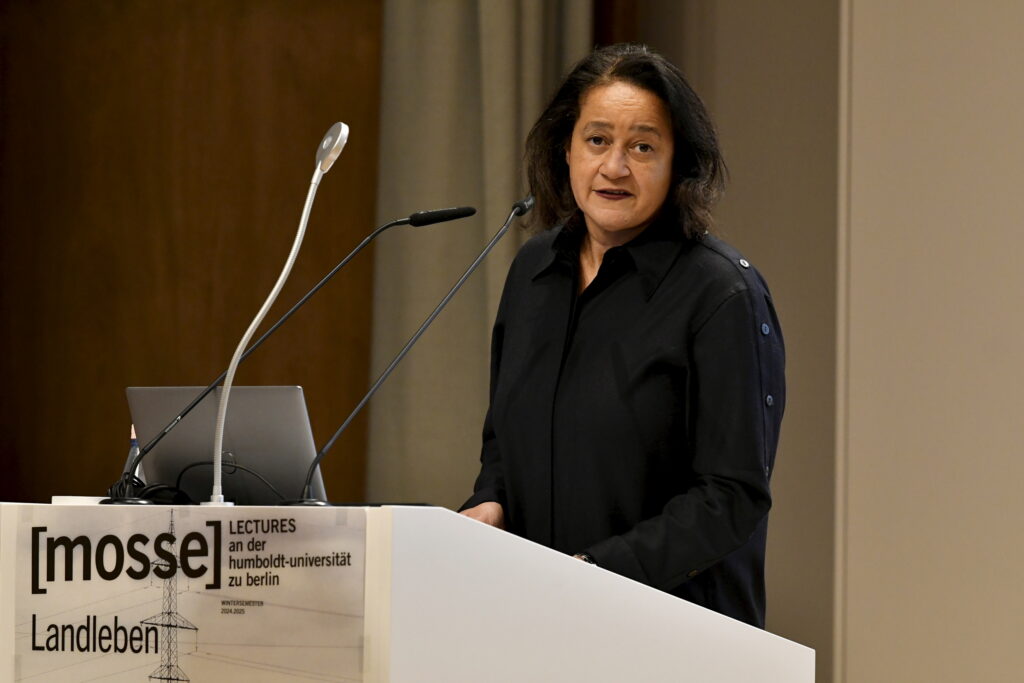
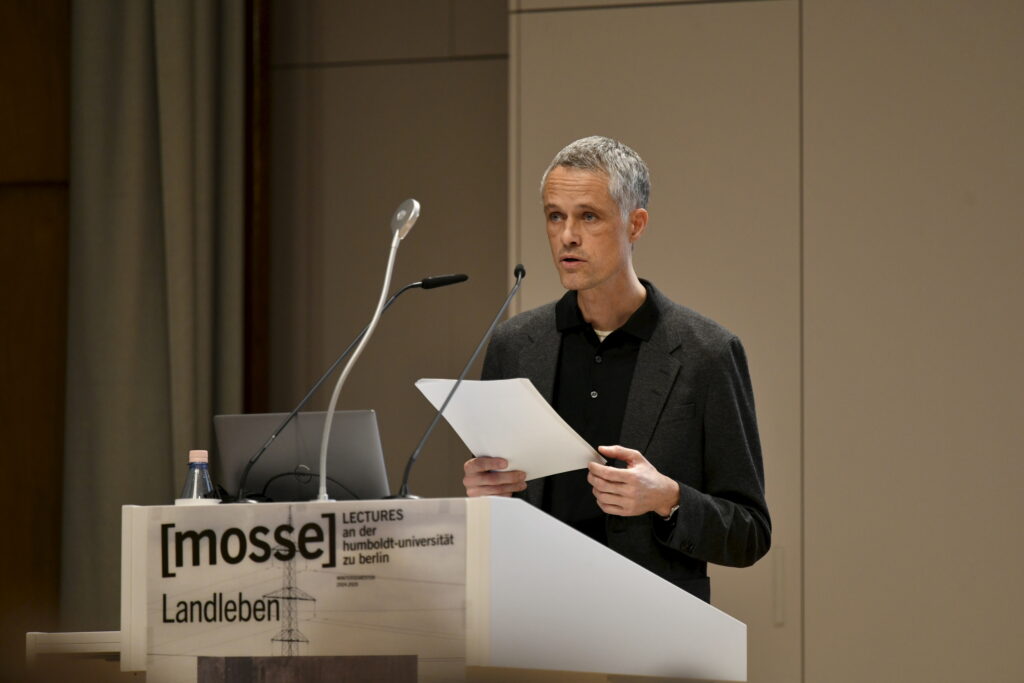
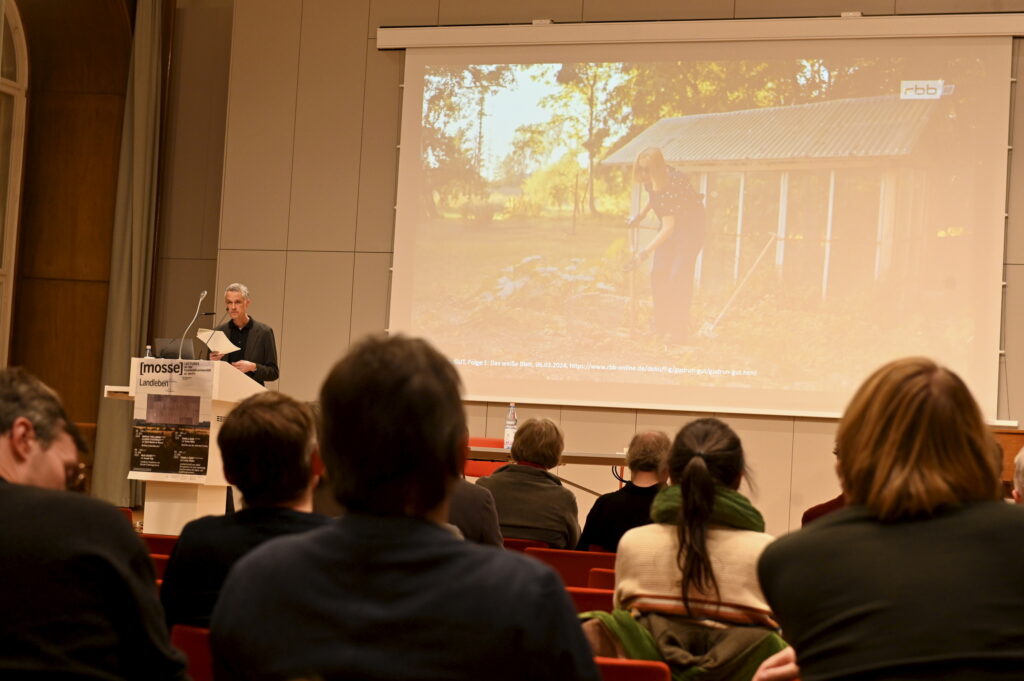
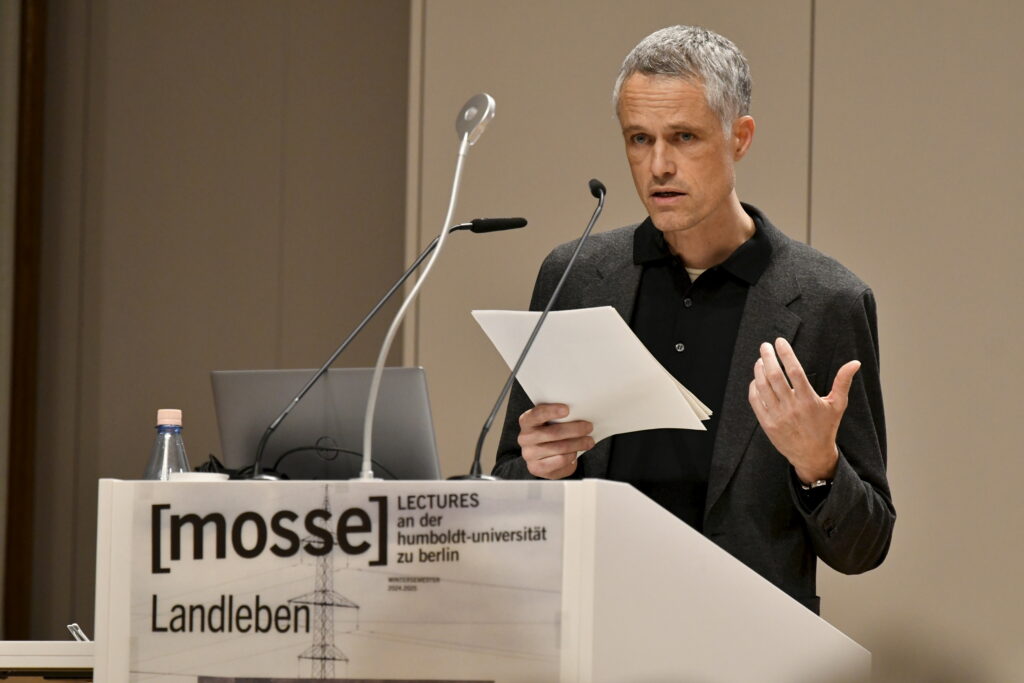
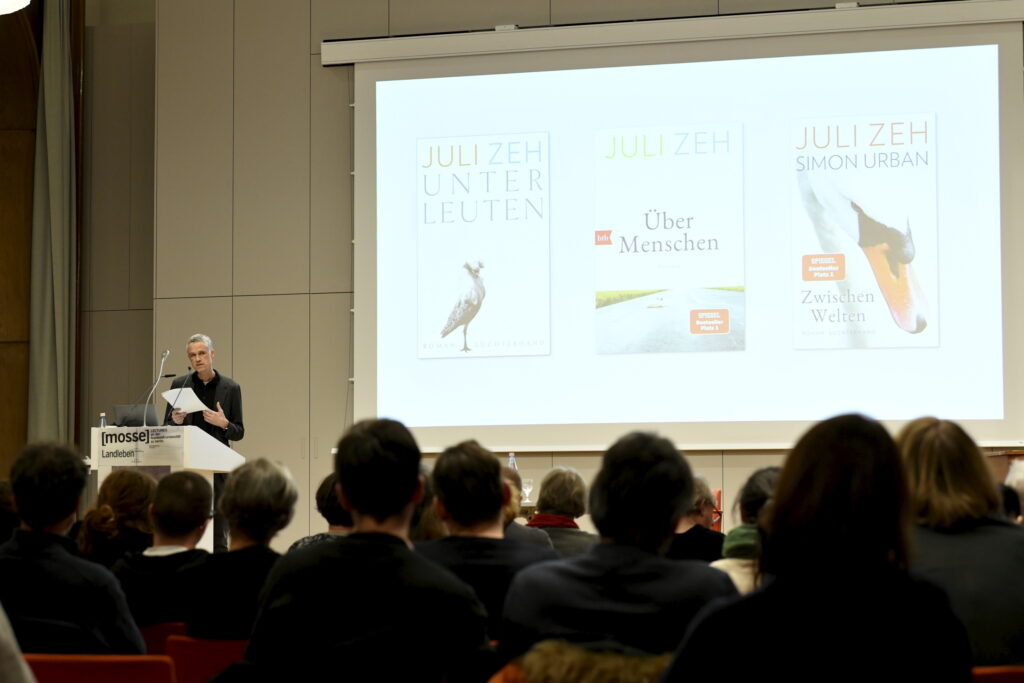
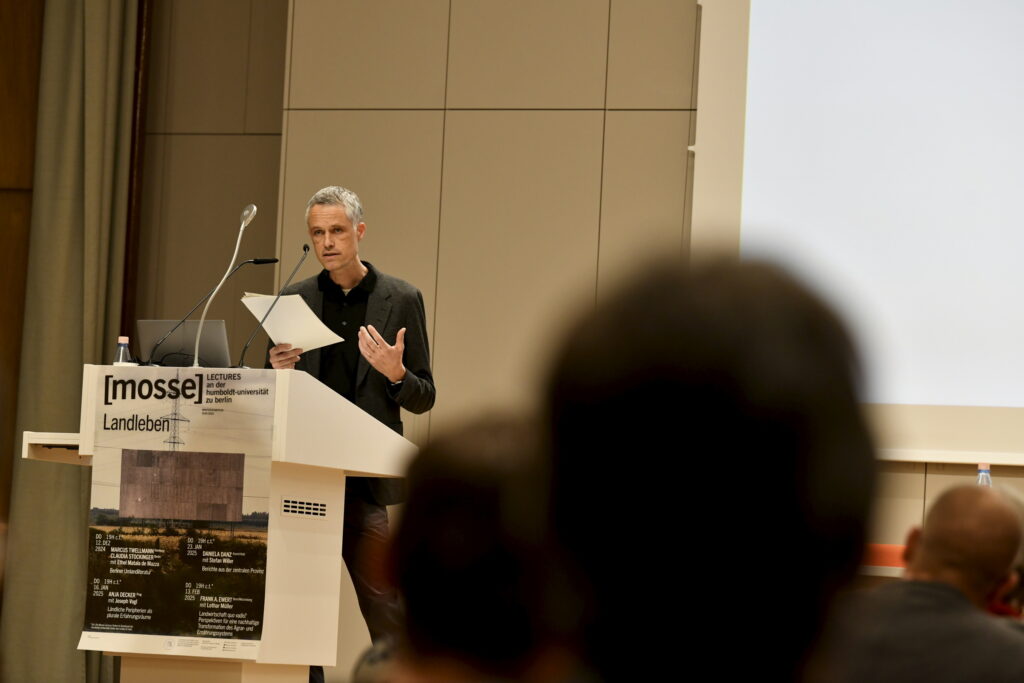
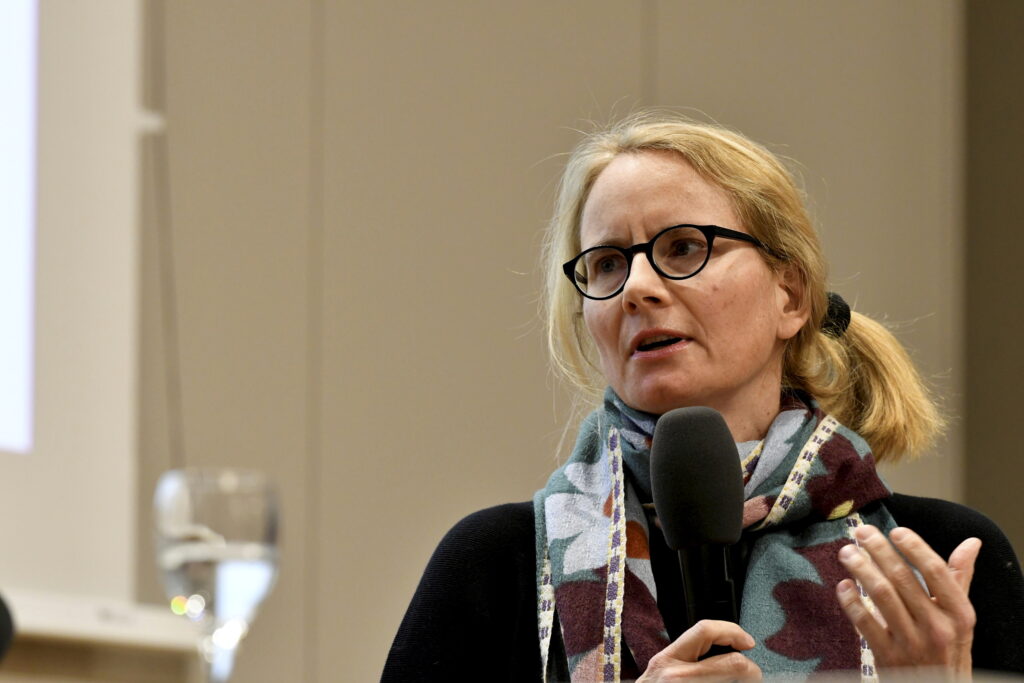
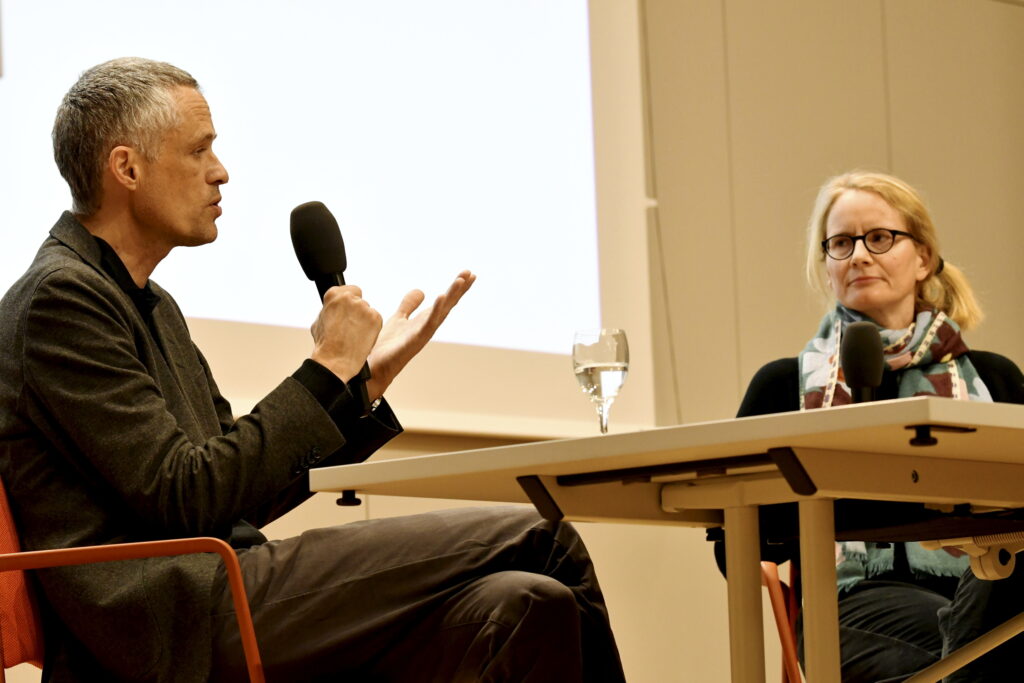
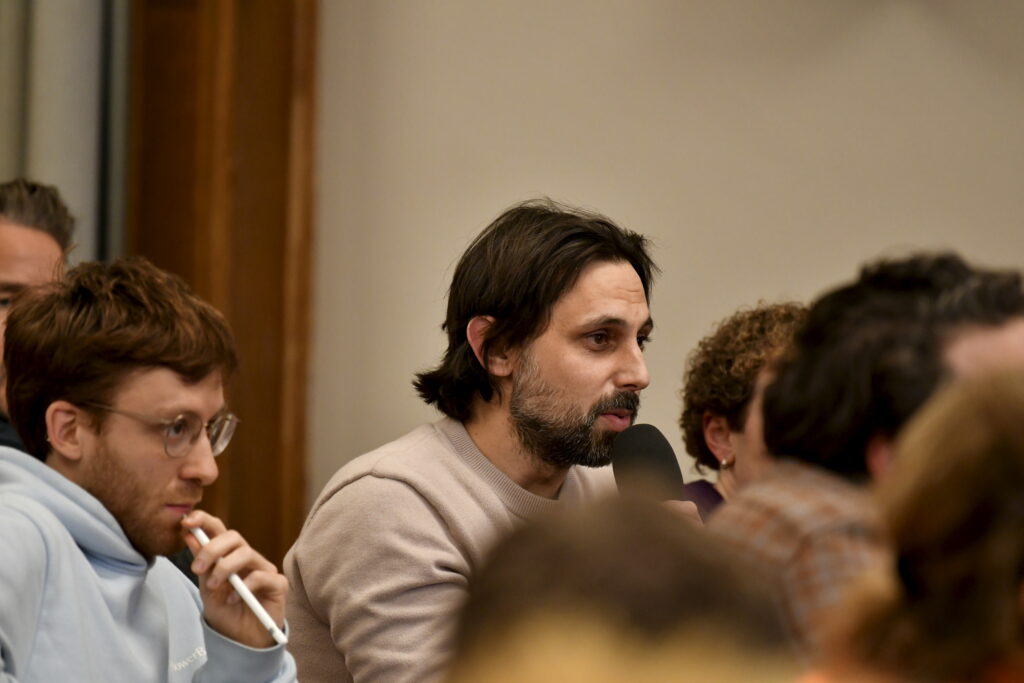
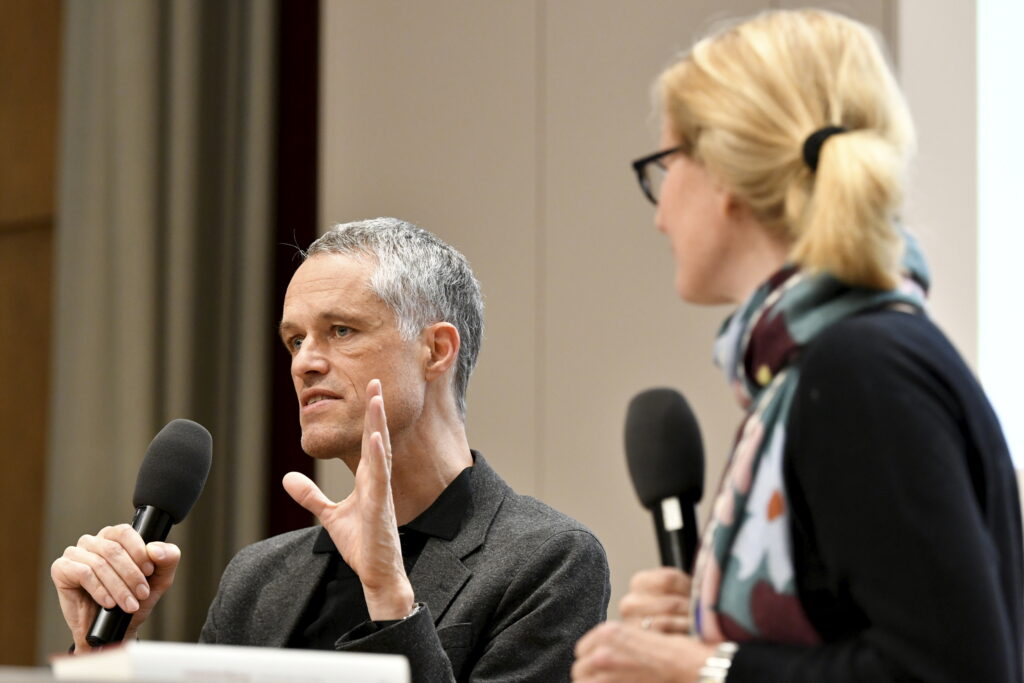
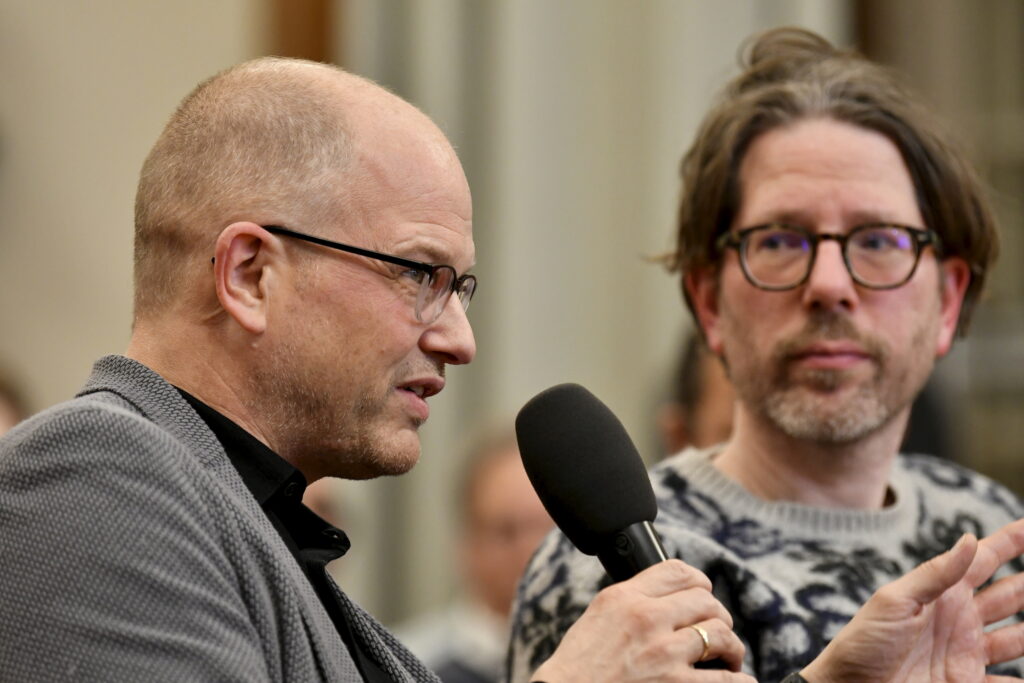
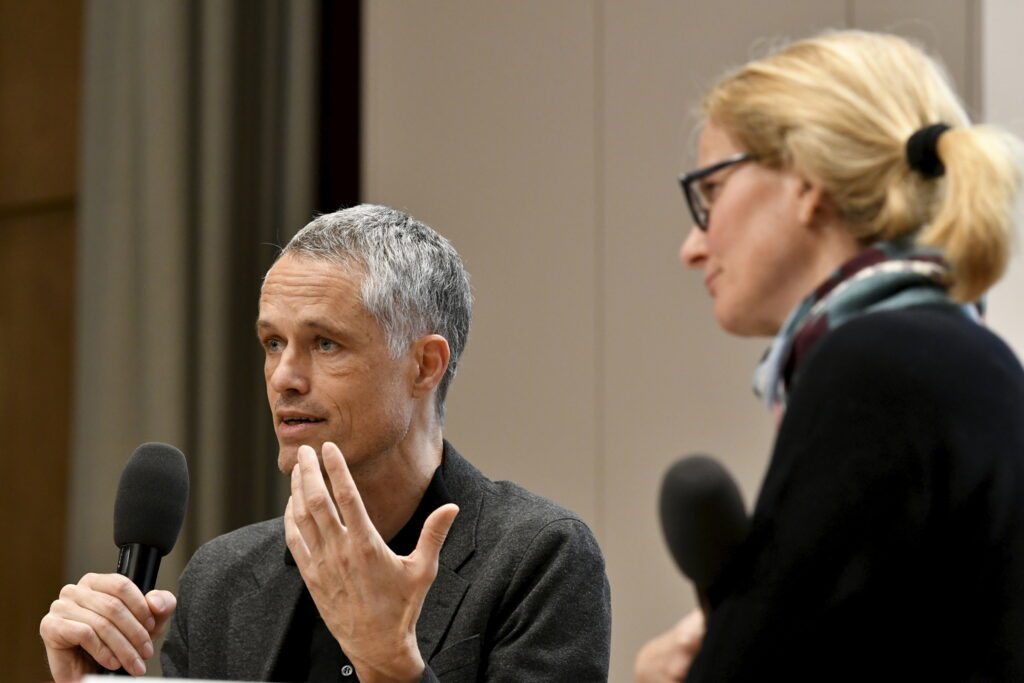
with Joseph Vogl
Thursday, January 16, 2024 | 7:15 p.m. | Senatssaal of Humboldt University, Unter den Linden 6, 10117 Berlin
The life chances and scope for action in Europe’s rural peripheries are the subject of lively debates that are intensively shaped by the social and cultural sciences. Diagnoses and attributions, fears and hopes are as diverse as they are contradictory: rural peripheries are viewed as both disadvantaged and disadvantaging regions in which particular challenges arise for coping with everyday life. At the same time, they are perceived as spaces of opportunity in which solutions for dealing with precarity and multiple crises emerge. There is an increasing focus on the political consequences and social dynamics when regions and their populations are seen as ›left behind‹ or ›far from innovation‹ or are held responsible as bearers of ›potential‹. But how do residents of rural peripheries experience their participation and opportunities to shape the future? What spatial and temporal references come into play? What lessons emerge from the everyday negotiations of different perceptions on the ground? Based on many years of ethnographic research and qualitative interviews in the Czech Republic, the lecture examines subjective constructions of agency from the perspective of residents of rural peripheries.
ANJA DECKER: Cultural anthropologist; Anja Decker is a research associate at the Sociological Institute of the Czech Academy of Sciences in Prague. Alongside the anthropology of rural areas, her work focuses in particular on research into precarity and inequality. She is co-initiator of the Commission for Cultural Analysis of the Rural at the German Society for Empirical Cultural Studies, of which she was spokesperson from 2017-2021. Her most recent publication in German was the volume »Das Ländliche als kulturelle Kategorie«, edited with Manuel Trummer.
The lecture will be held in german.
gallery:
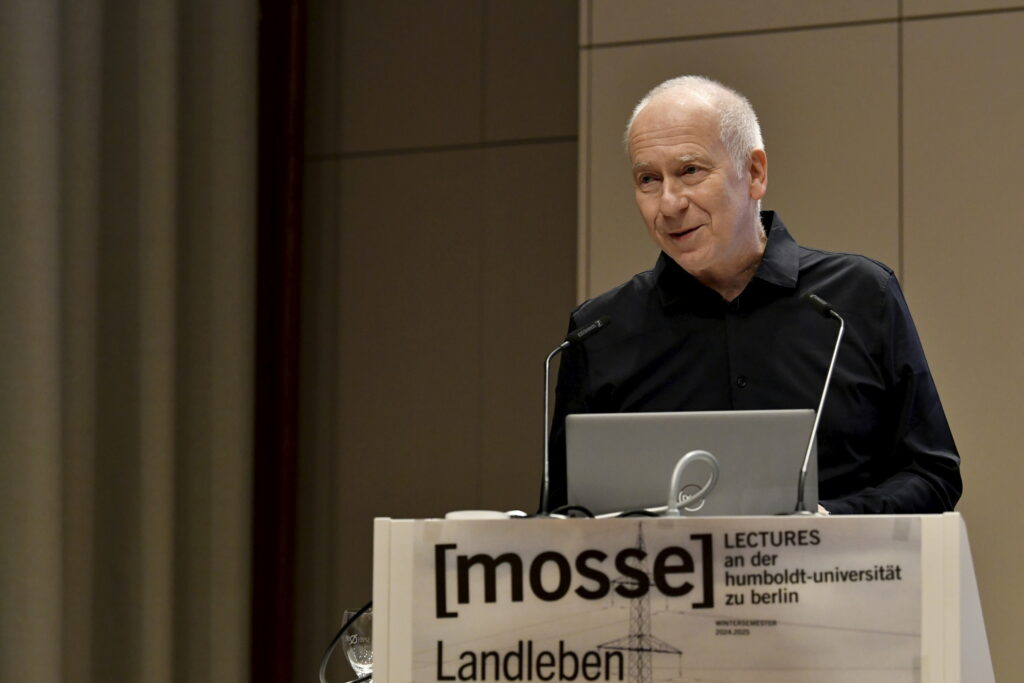
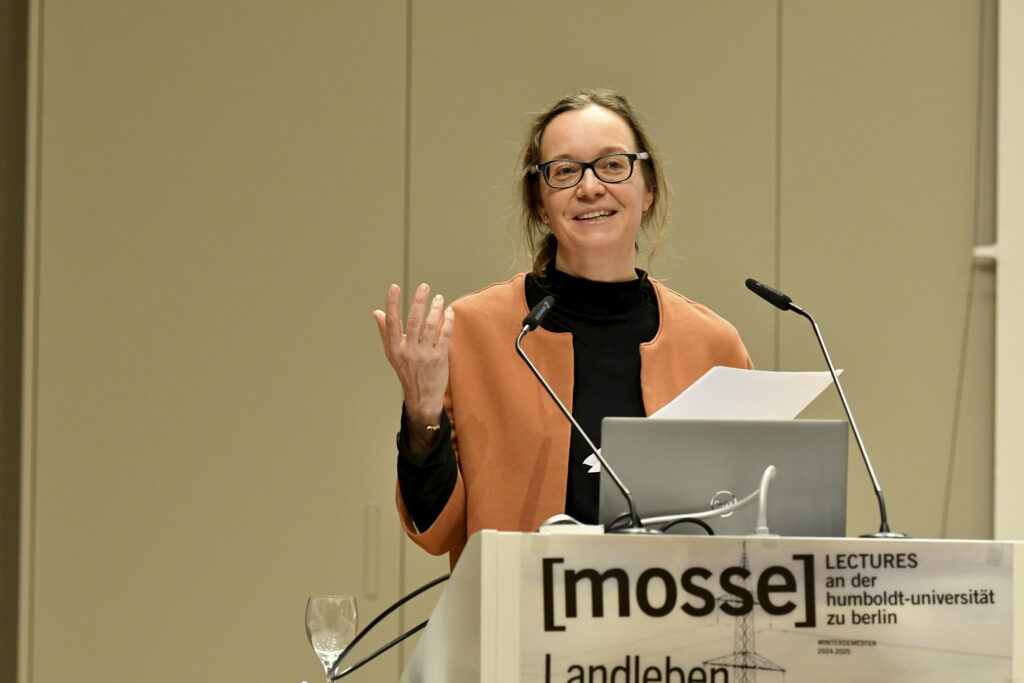
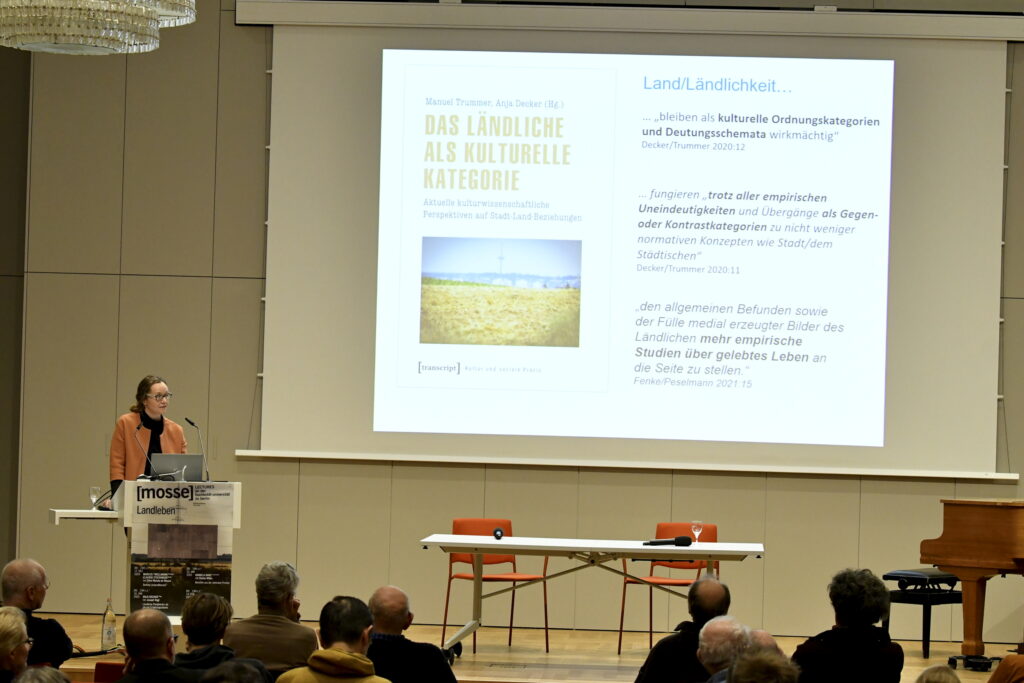
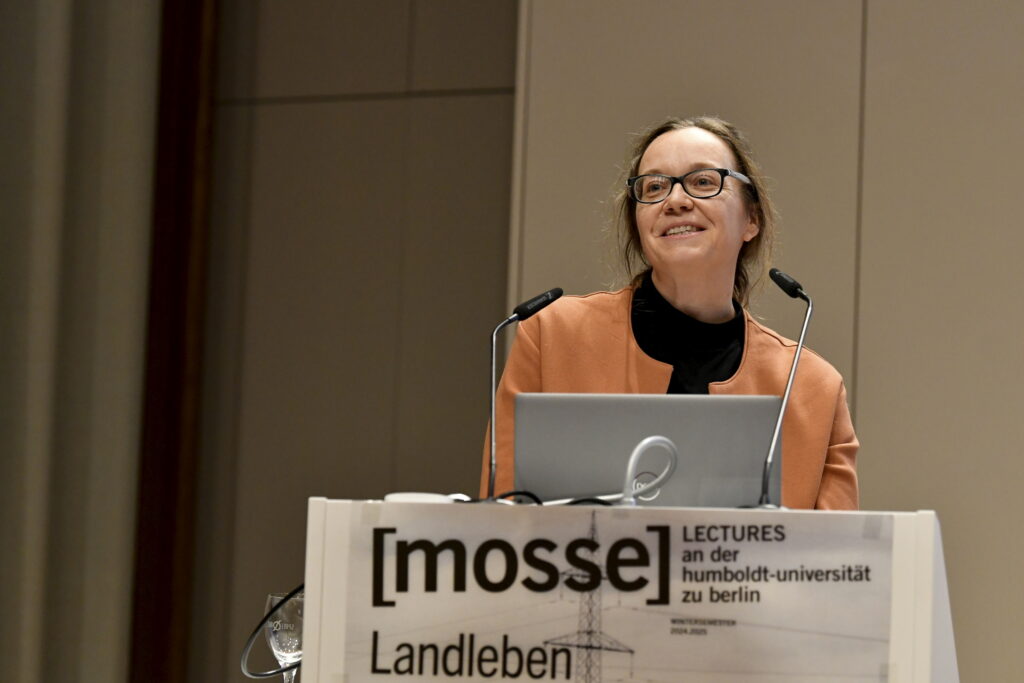
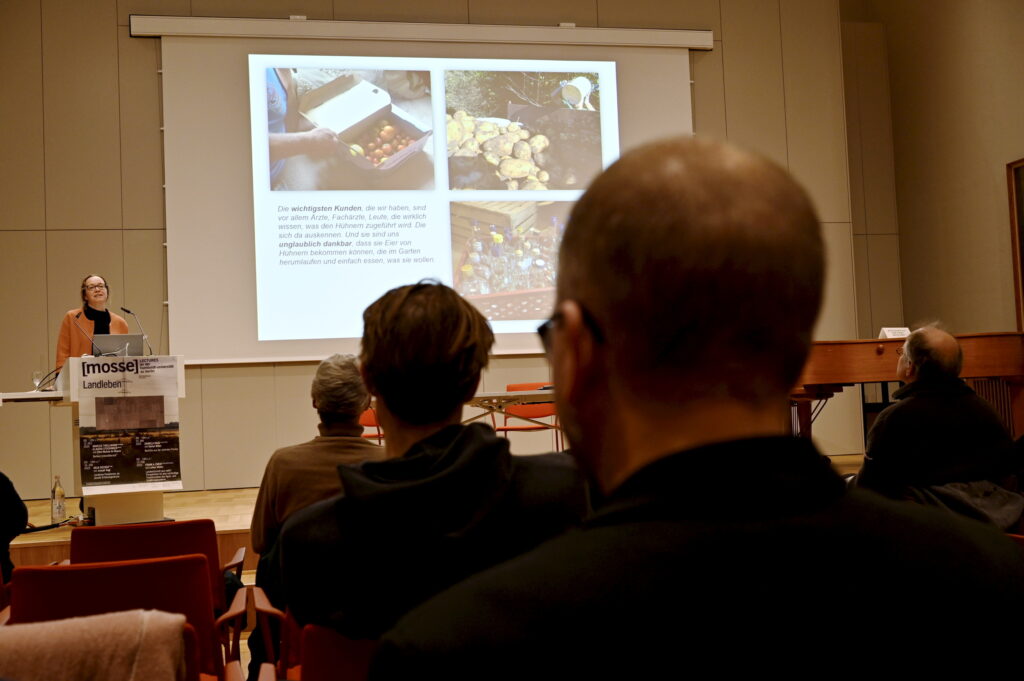
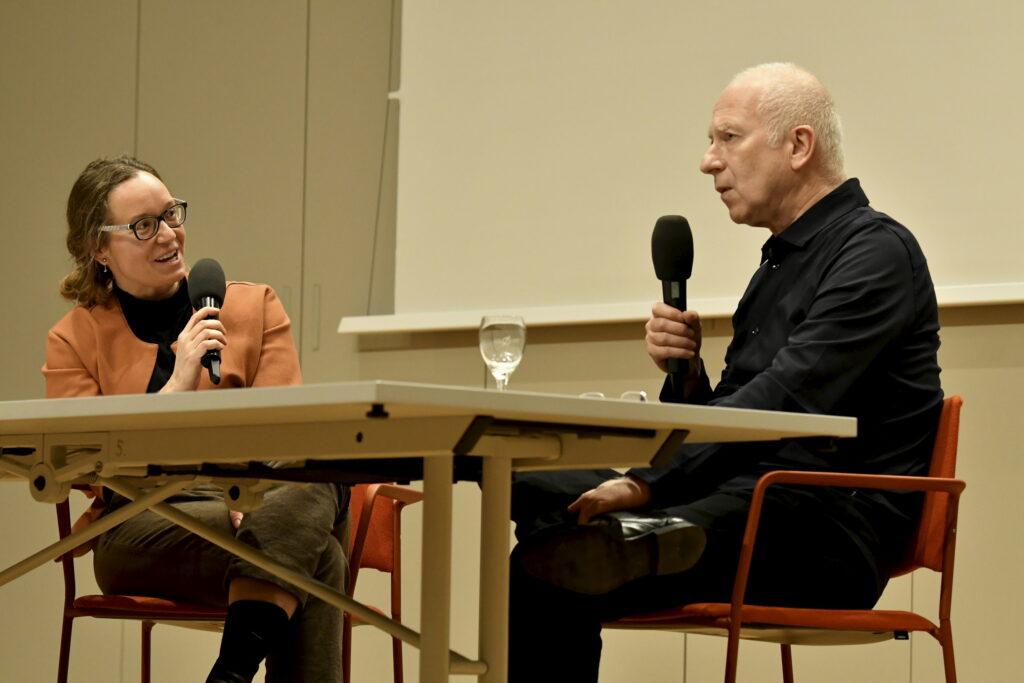
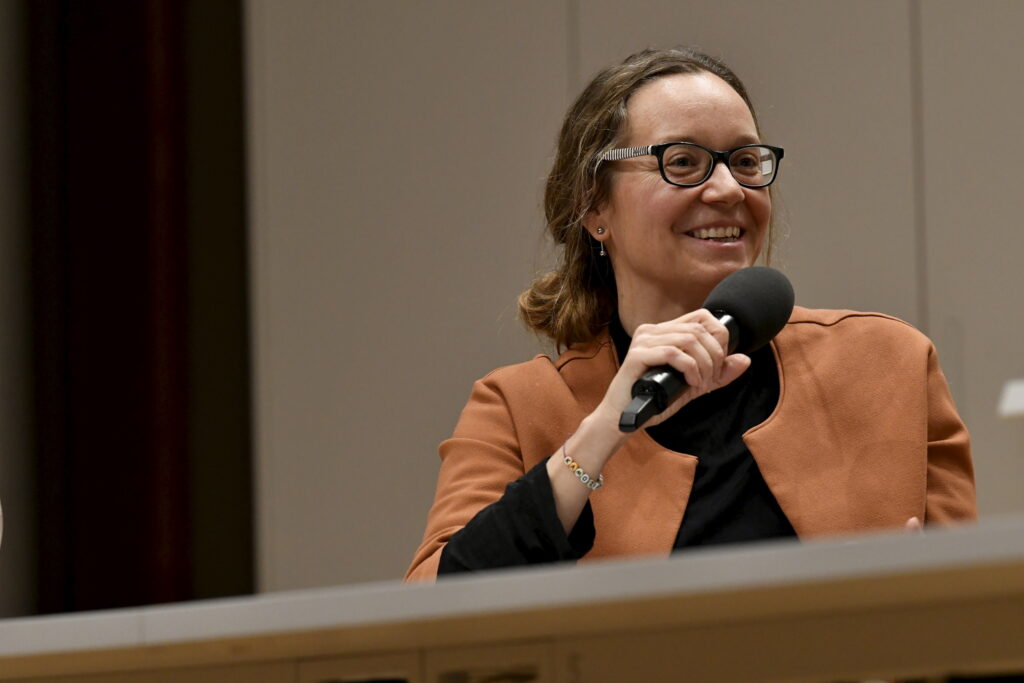
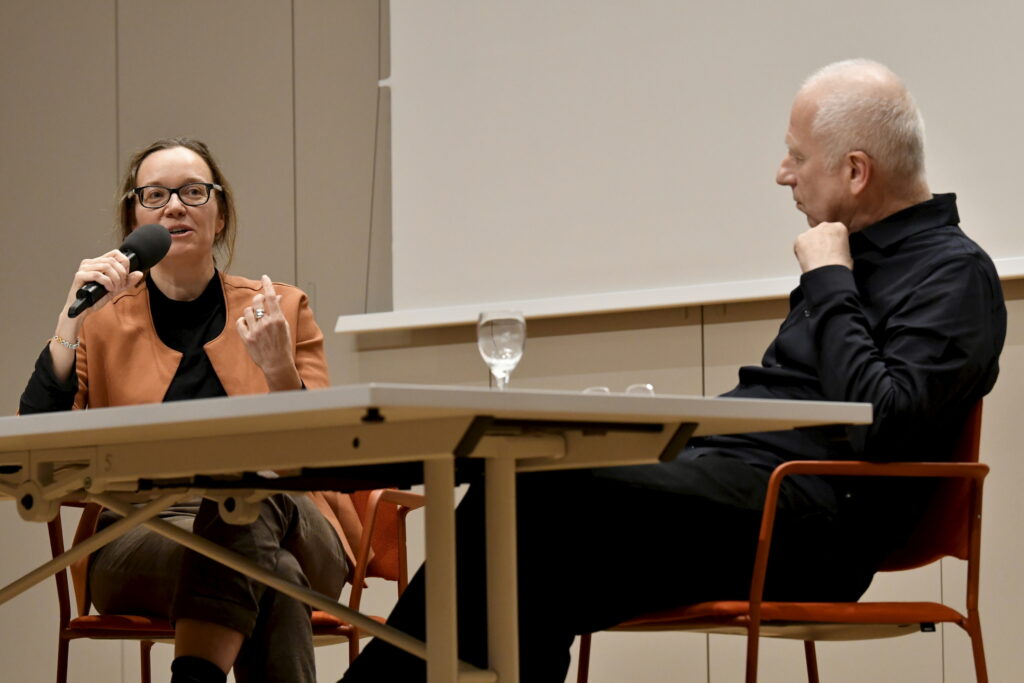
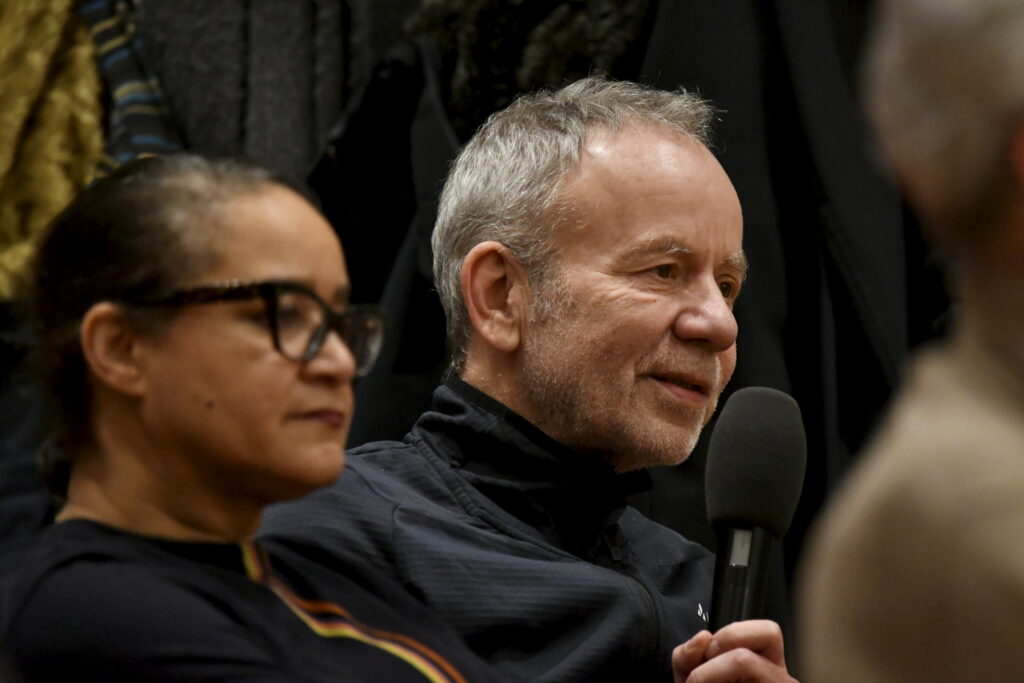
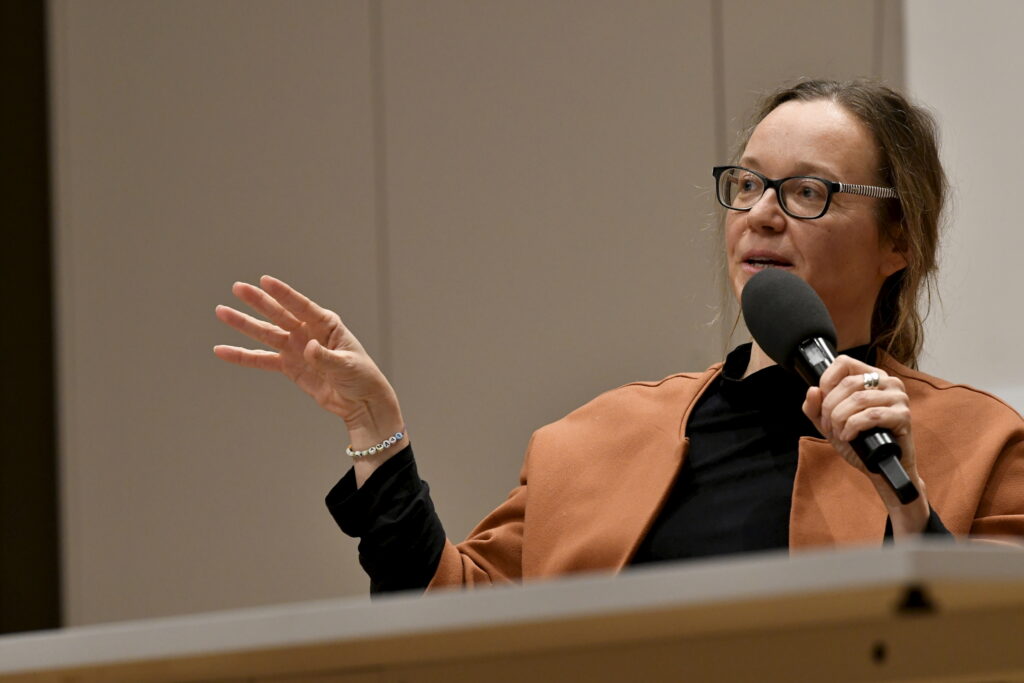
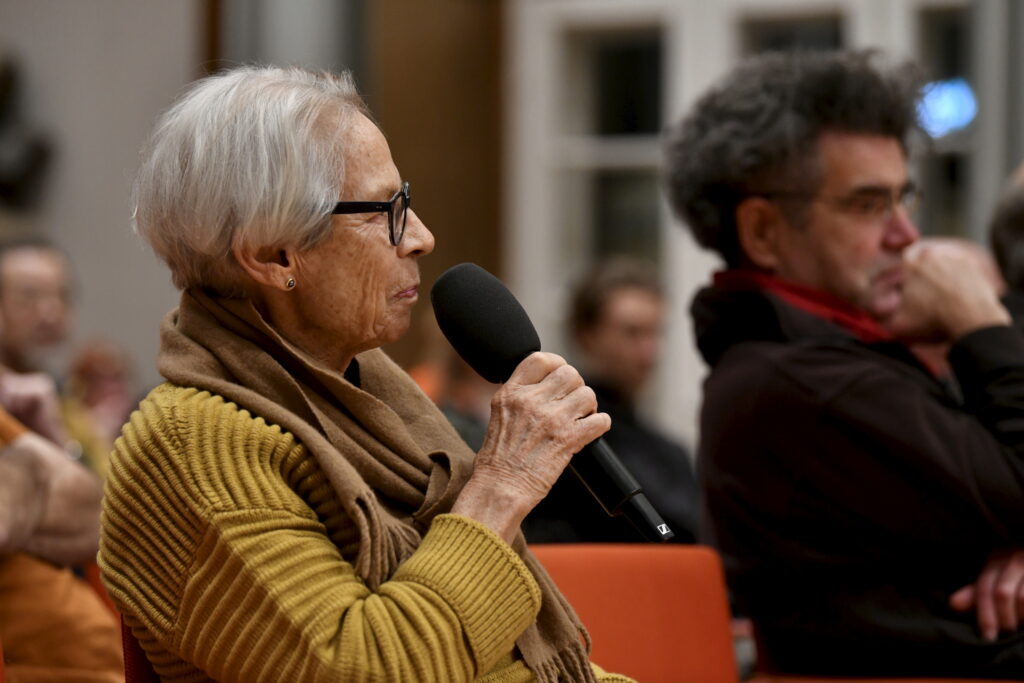
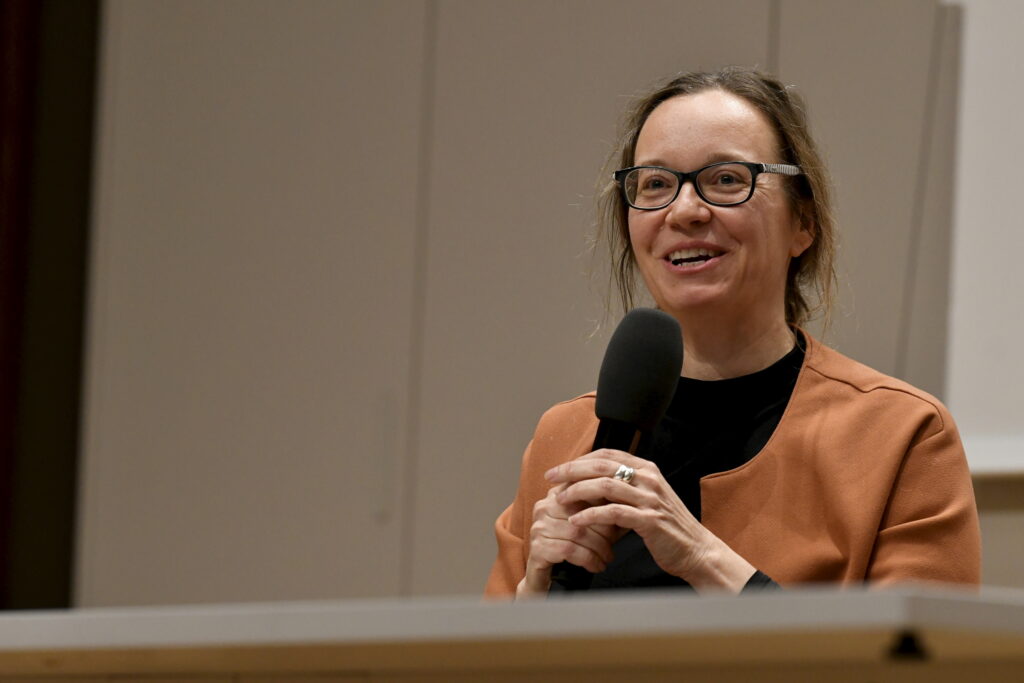
with Stefan Willer
Thursday, January 23, 2024 | 7:15 p.m. | Senatssaal of Humboldt University, Unter den Linden 6, 10117 Berlin
As the recent elections have shown, the gap between rural and urban spaces has the potential to set political dynamics in motion and will be one of the issues for the future in terms of social transformation. In her texts, Daniela Danz explores how this field of tension can be captured poetically. Her Mosse Lecture raises the question of how the poeticization of the ‘rural’ makes it possible to experience rural spaces not only as geographical places, but also as a characteristic network of references between history and the present.
DANIELA DANZ: Poet, novelist, essayist and editor; Vice President of the Academy of Sciences and Literature Mainz and member of the Bavarian Academy of Fine Arts since 2022. Daniela Danz’s poetry has been translated into various languages, including English, Arabic, French, Spanish, Serbian, Czech, Polish, Armenian and Albanian. The English translation of her 2020 book »Wilderness« (translated by Monika Cassel) was a finalist for the Rhine Translation Prize. She received the German Prize for Nature Writing in 2019 and the Thuringian Literature Prize in 2023. Most recently, the essay collection »Nichts ersetzt den Blick ins Gelände« was published by Wallstein Verlag.
The lecture will be held in german.
gallery:
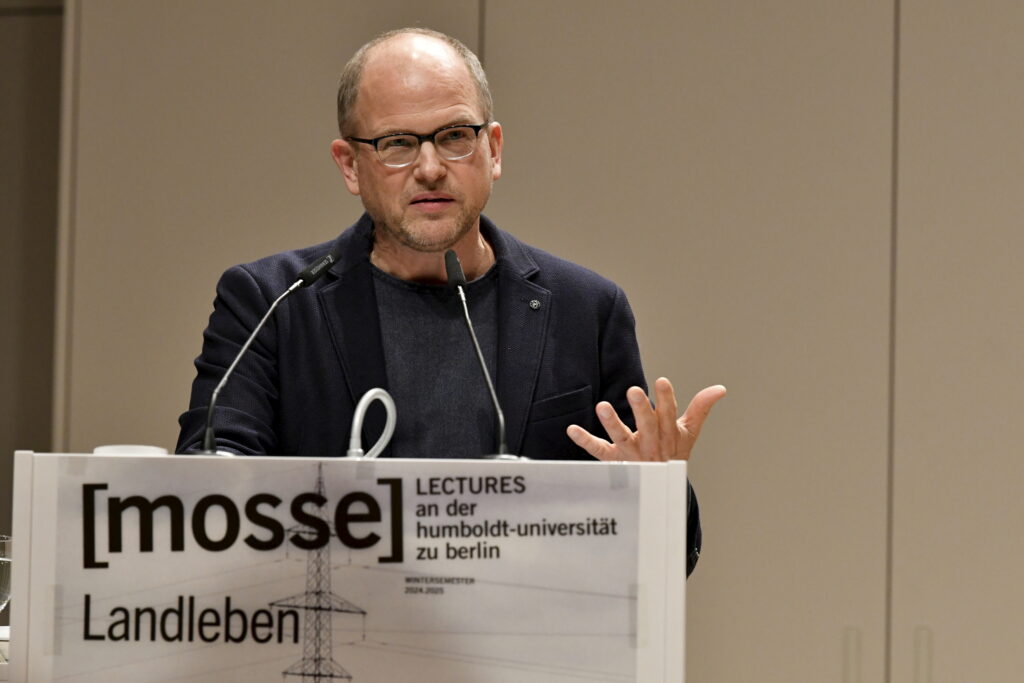
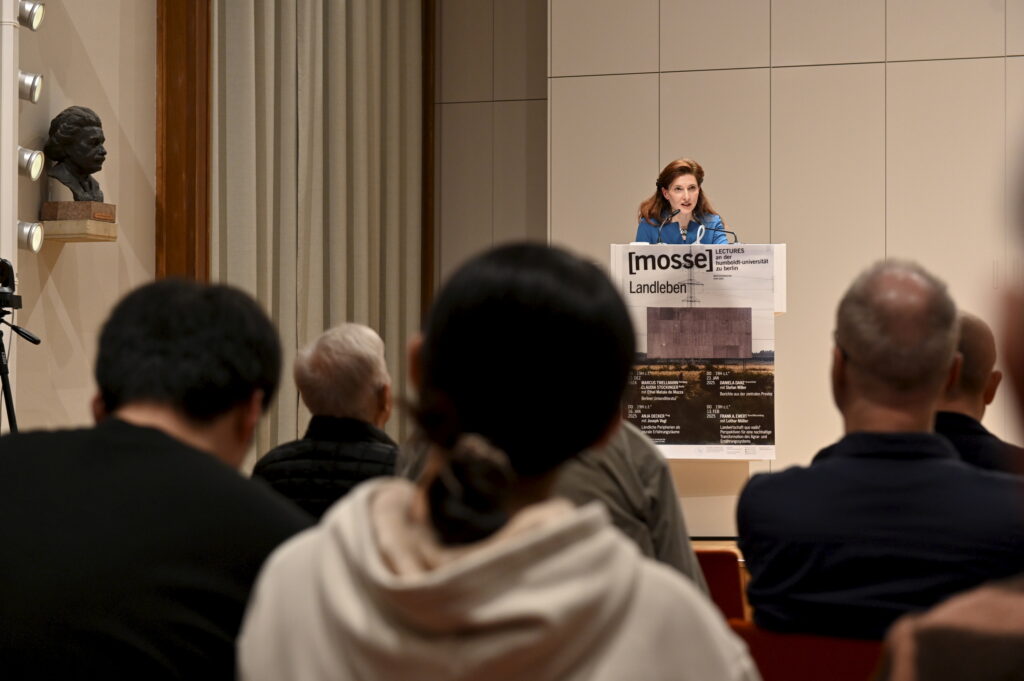
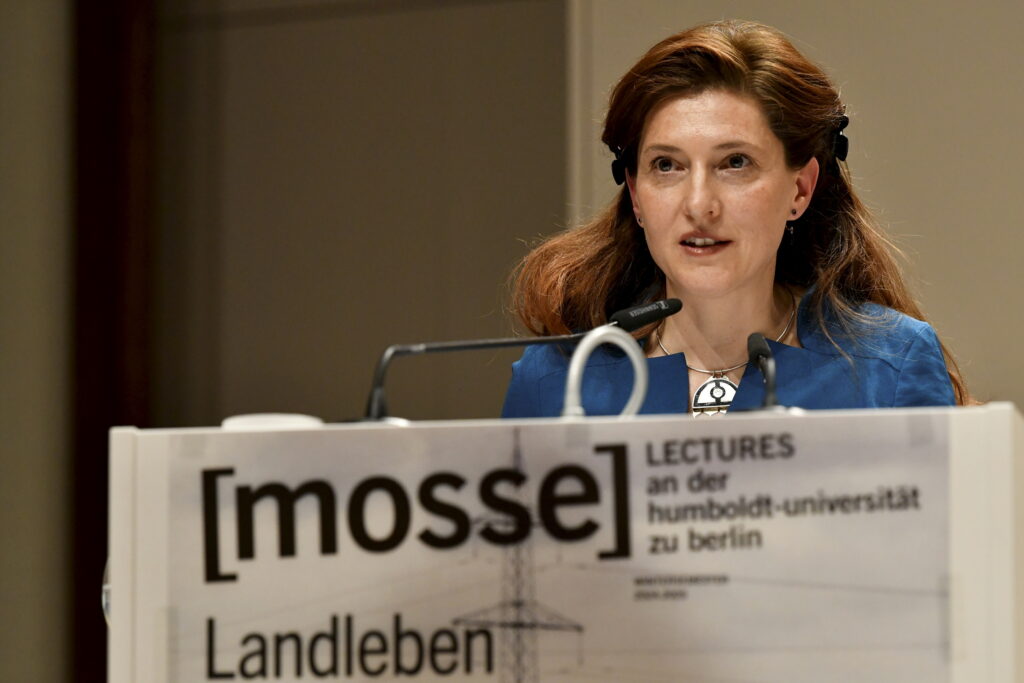
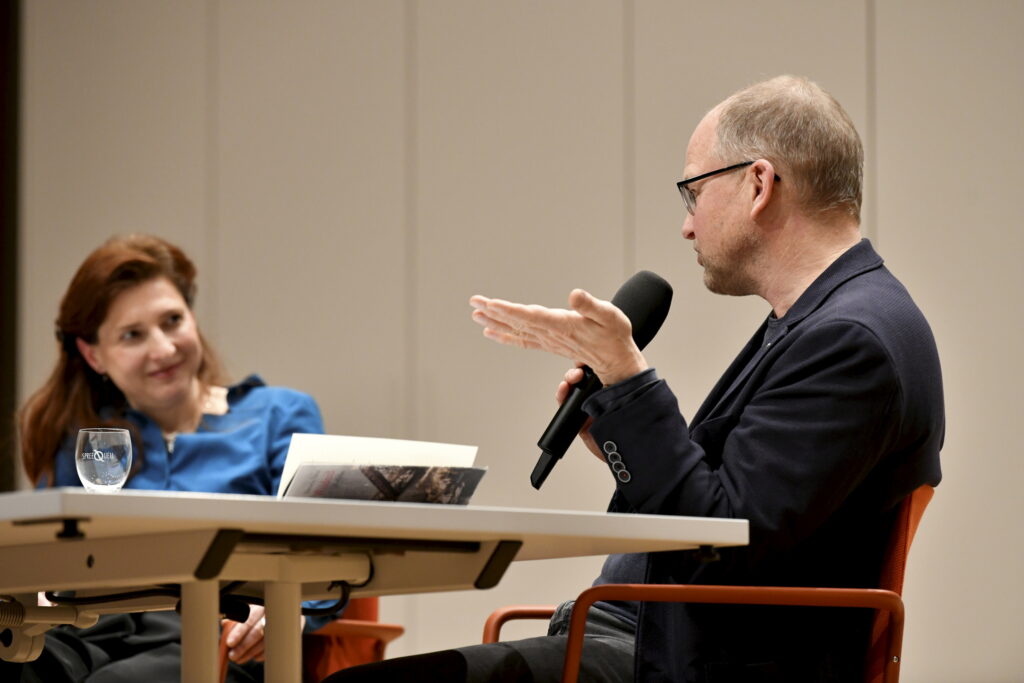
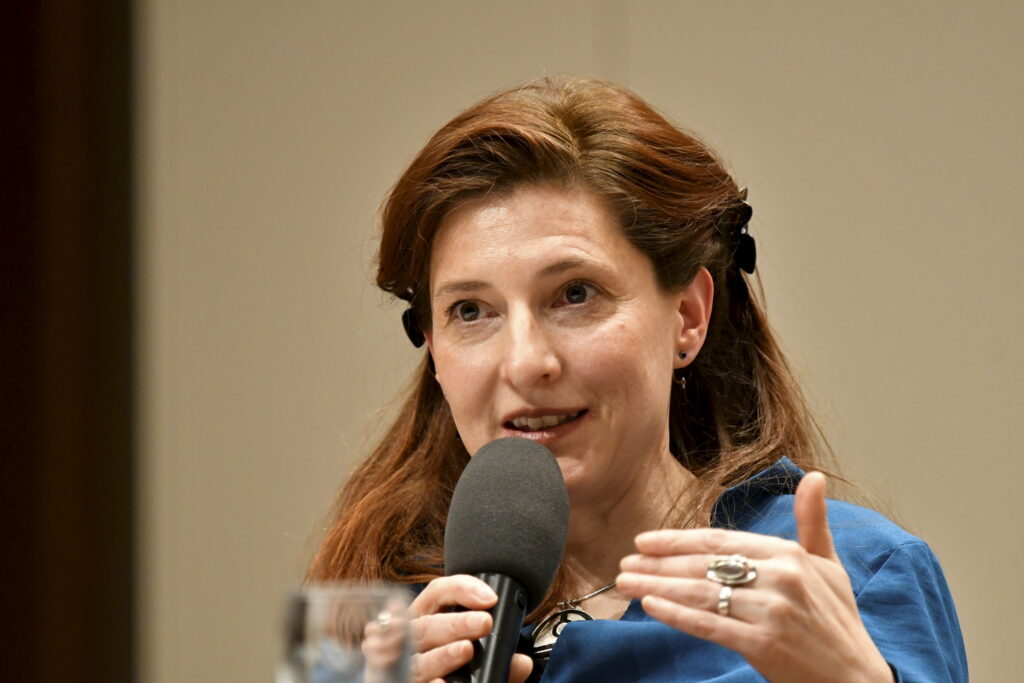
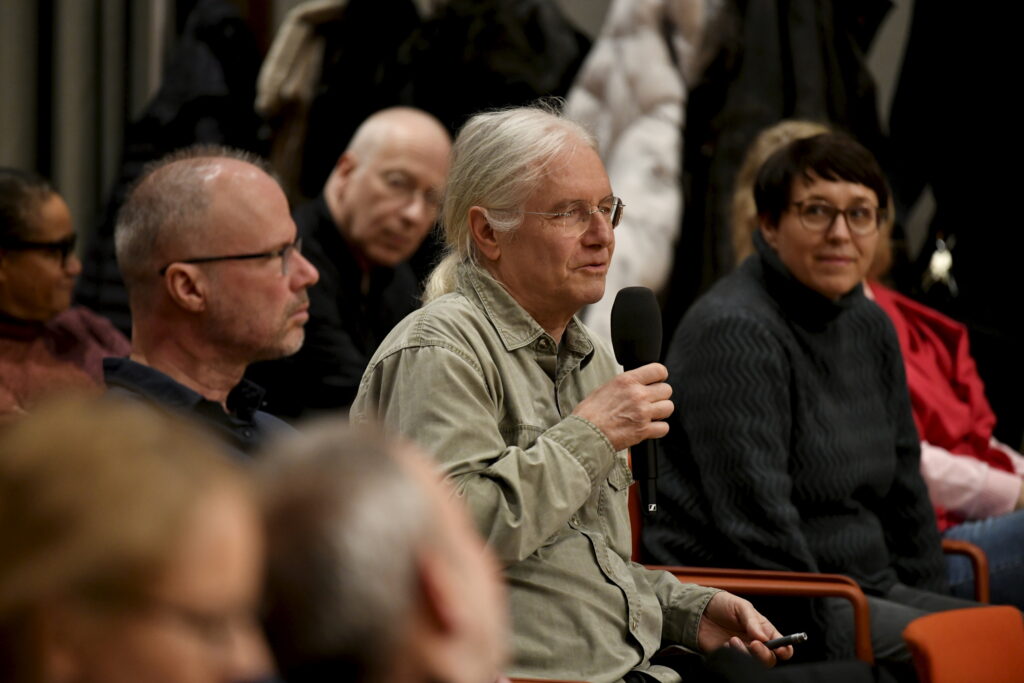
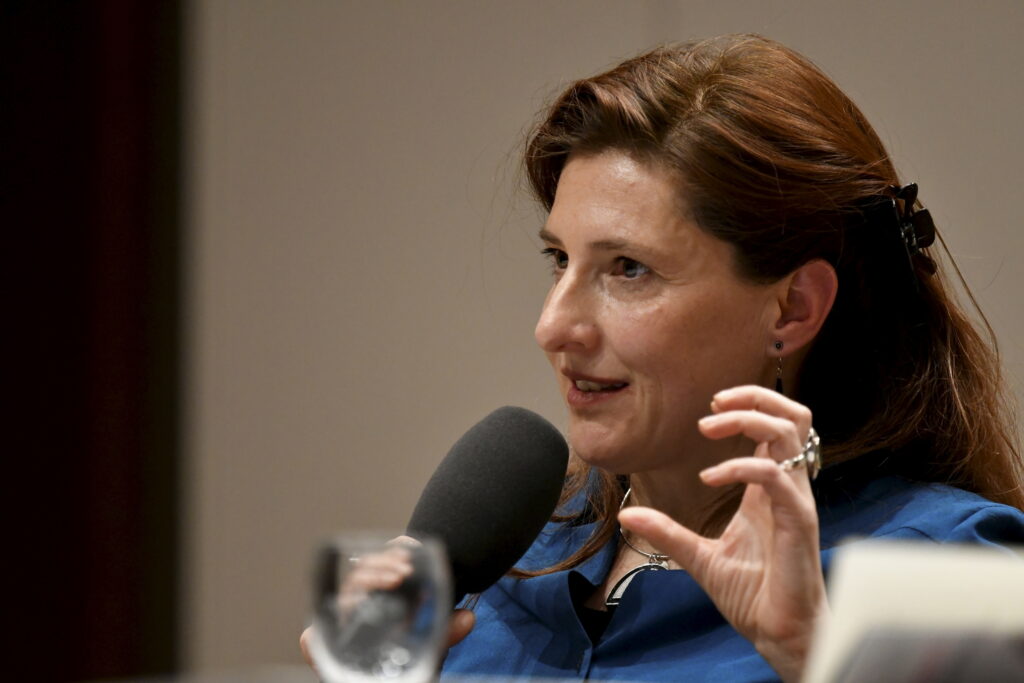
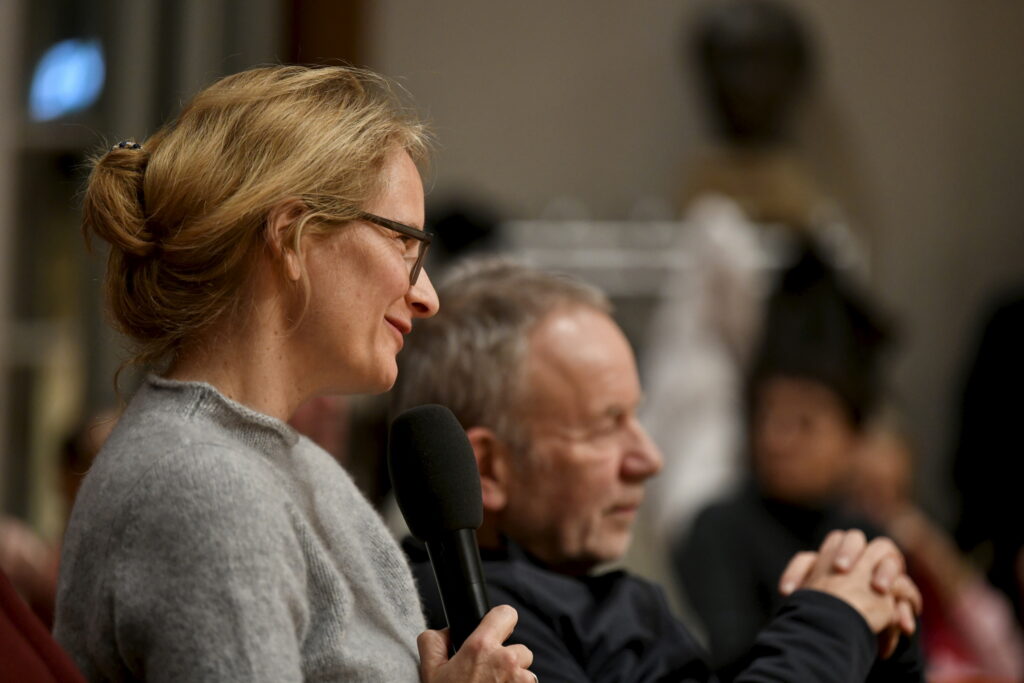
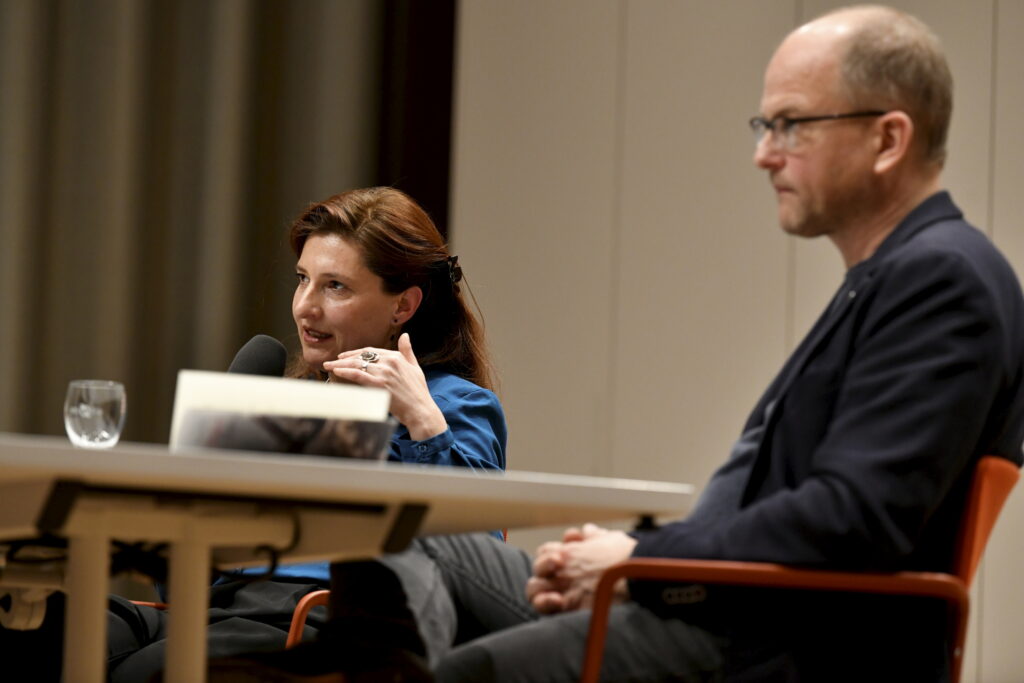
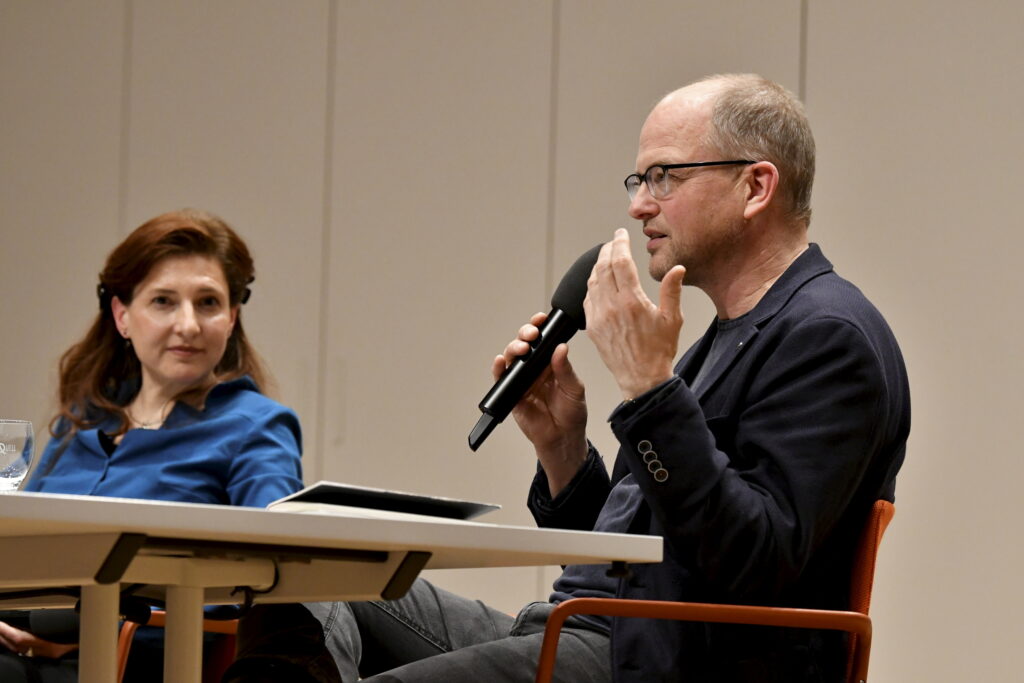
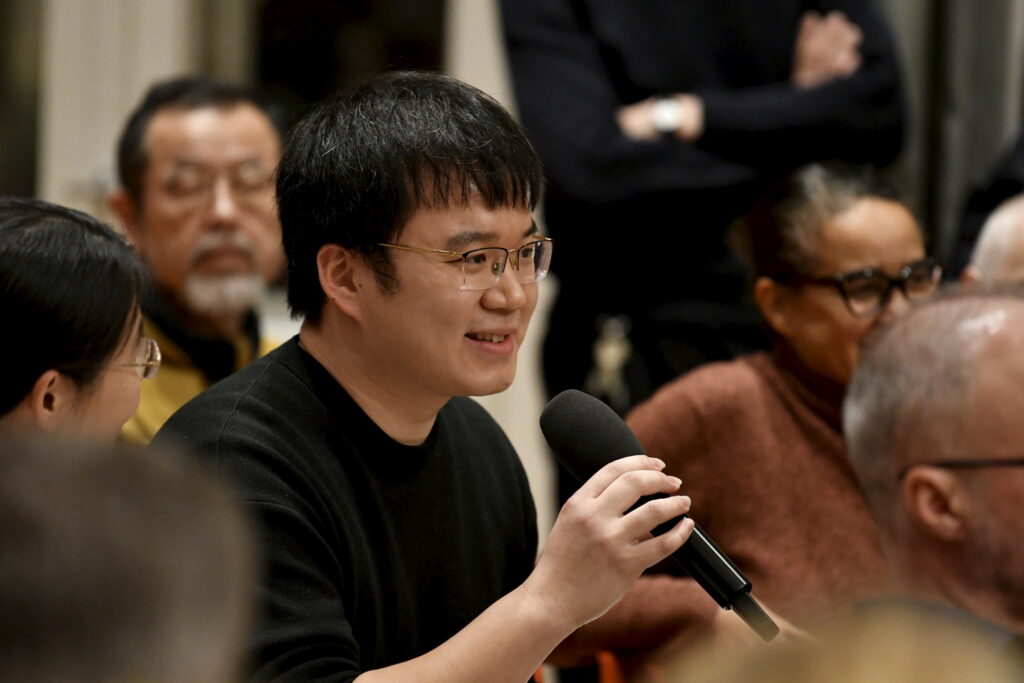
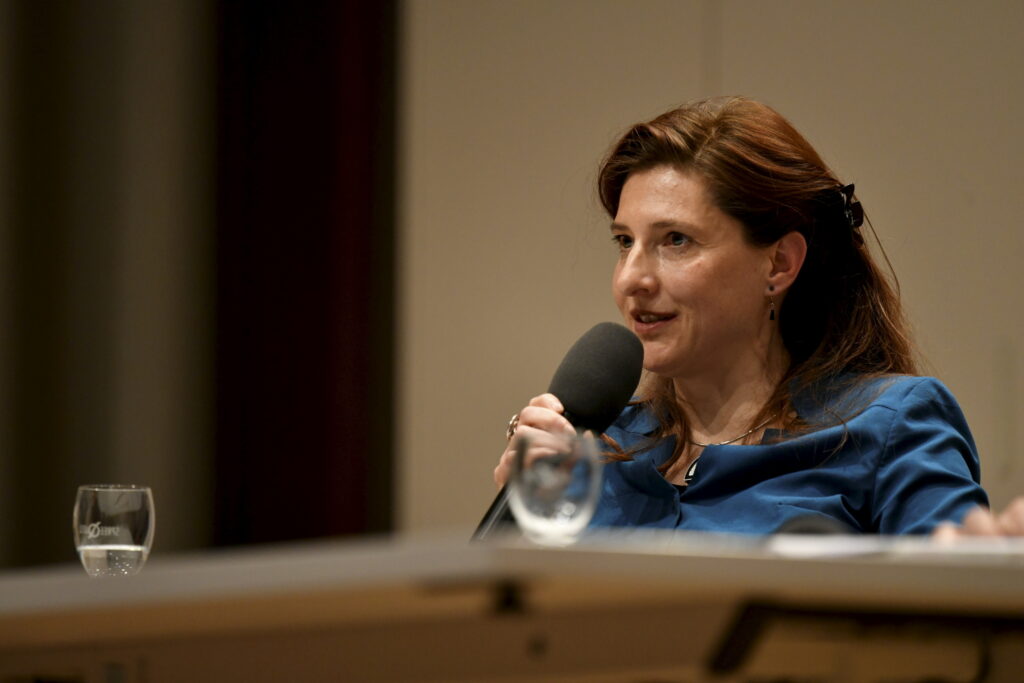
with Lothar Müller
Thursday, February 13, 2024 | 7:15 p.m. | Senatssaal of Humboldt University, Unter den Linden 6, 10117 Berlin
Agriculture faces enormous challenges in many areas, such as food security, climate change, degradation of natural resources, species loss, volatile prices and unstable supply chains. Future generations and people in the Global South must also be supplied with sufficient, high-quality food, which can only be produced and provided on the basis of intact ecosystems. Sustainable solutions go hand in hand with conflicting goals and require the best possible use of synergies.
From a historical perspective, agriculture has fundamentally shaped the development of human society, but has also undergone great leaps in change itself and is currently facing the most extensive transformation in recent centuries. However, the necessary and urgent transformation process of the agricultural and food system is progressing slowly and is less and less able to meet the growing demands. Last but not least, the size, speed and extent of the challenges and the scope of the necessary changes are overwhelming the agents involved from politics, practice, research, industry and society. Nevertheless, encouraging approaches can be found that promise a successful start to the complex transformation process. The lecture will shed light on the enormous challenges agriculture is facing and outlines prospects for a transformation to sustainable agricultural and food systems that fulfill a variety of functions, such as food security, the preservation of ecosystems and biodiversity and climate protection. Approaches are presented and discussed as examples of how they can accelerate the transformation process.
FRANK A. EWERT: Agricultural Scientist; Professor of Crop Science at the University of Bonn. Frank A. Ewert is Scientific Director at the Leibniz Centre for Agricultural Landscape Research (ZALF e.V.). He is one of the Highly Cited Researchers in the field of agricultural sciences and is among the top 100 of the Reuters »Hot List« of the world’s most influential climate scientists. His areas of expertise include crop science, production ecology, systems analysis and crop growth modeling. In addition, his work focuses on sustainability assessment as well as the estimation of the consequences and impact of climate change on crop production systems, food security and resource conservation.
The lecture will be held in german.
gallery:
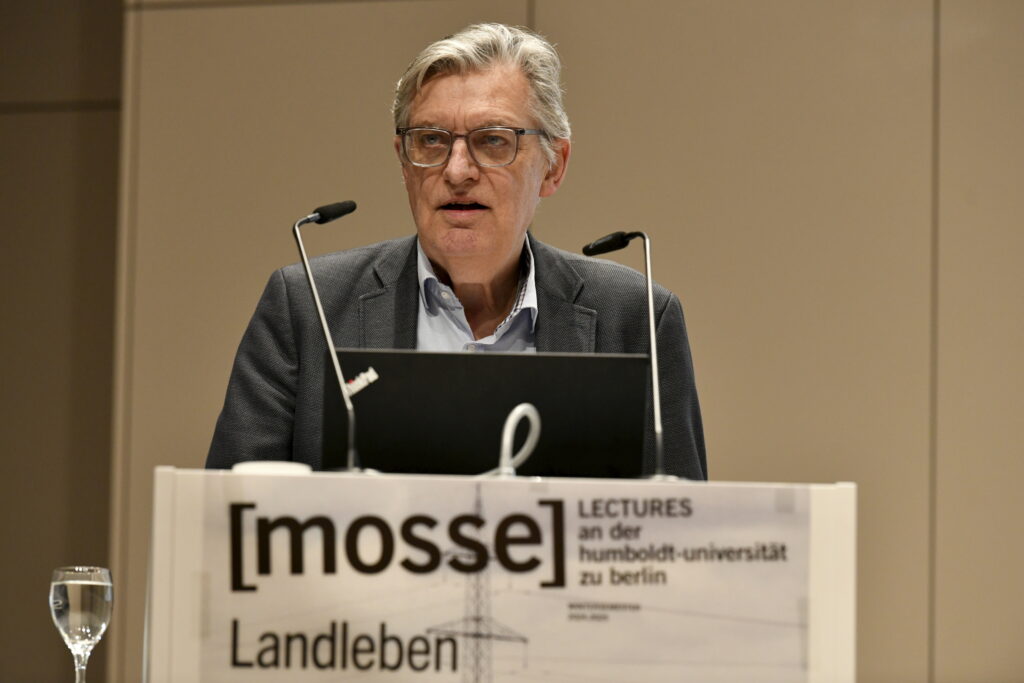
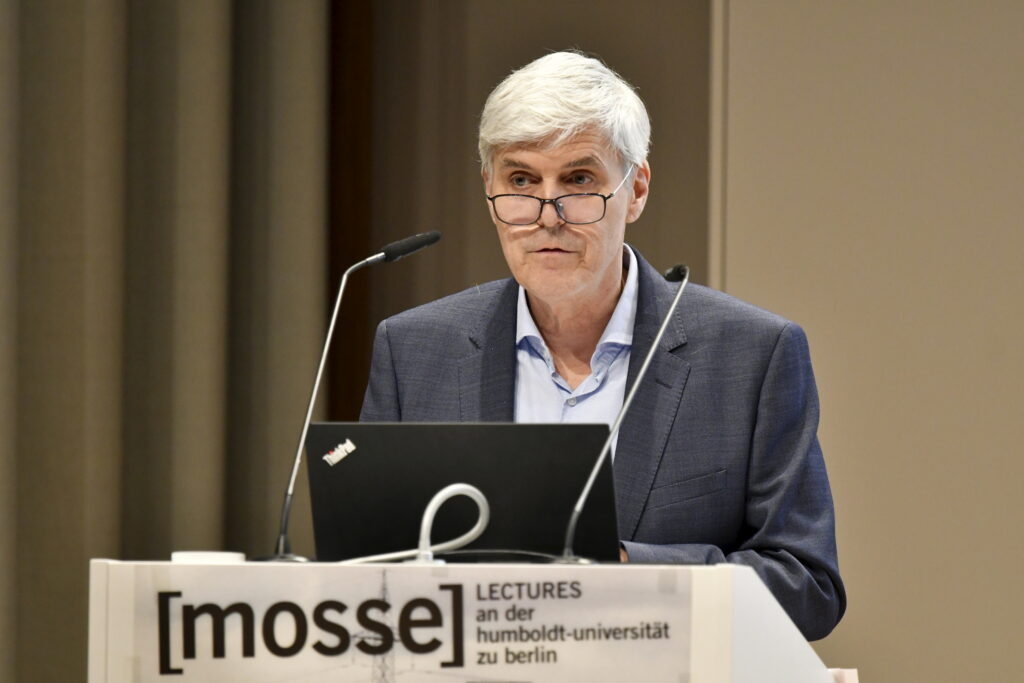
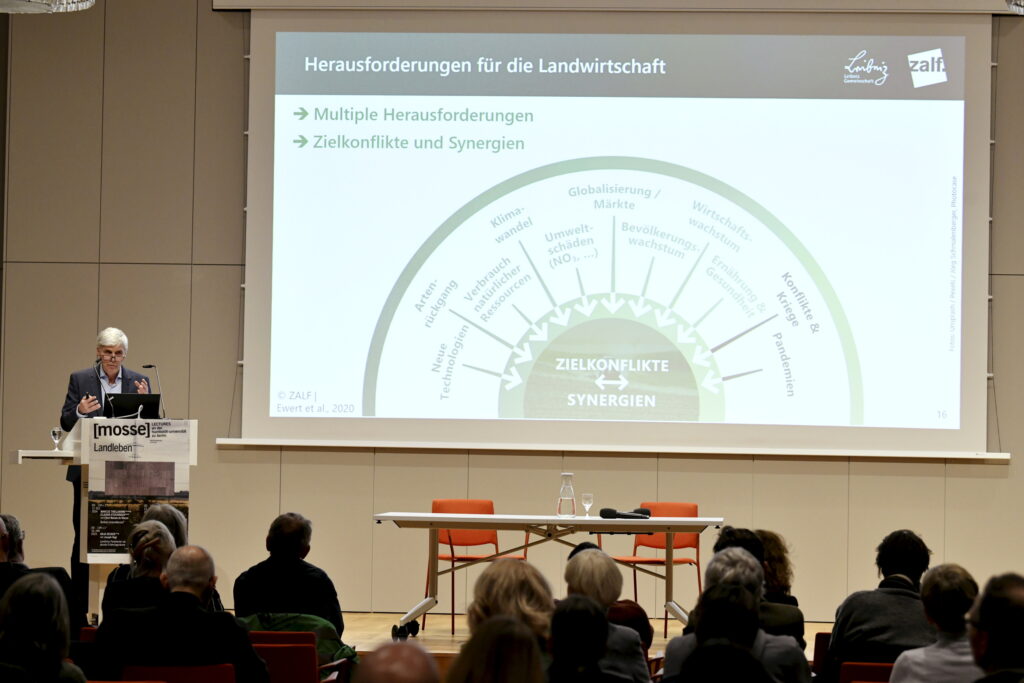
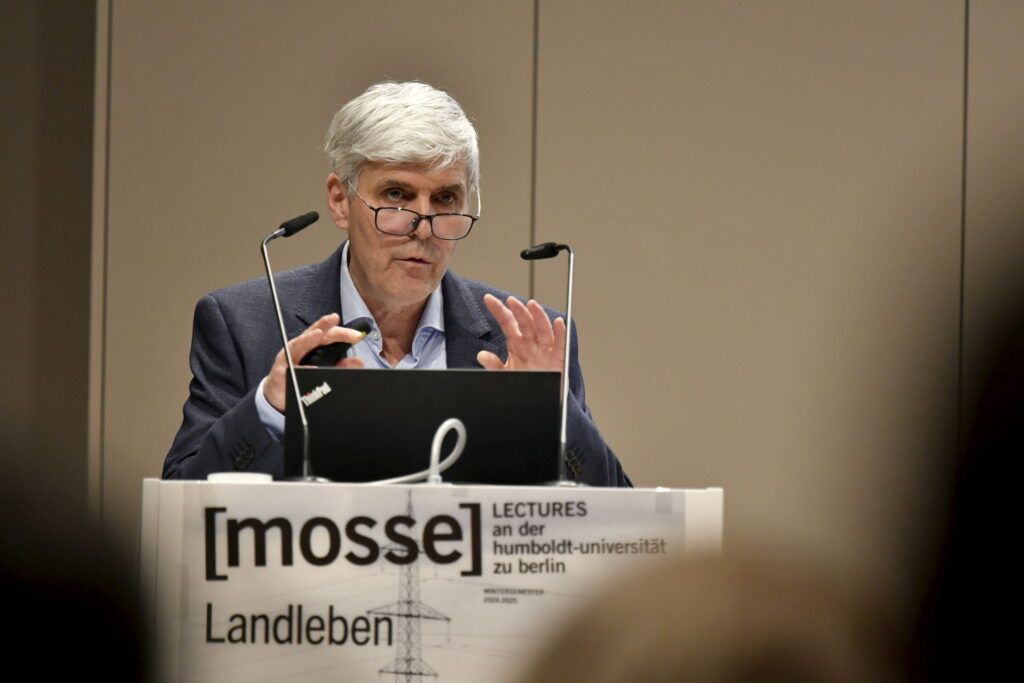
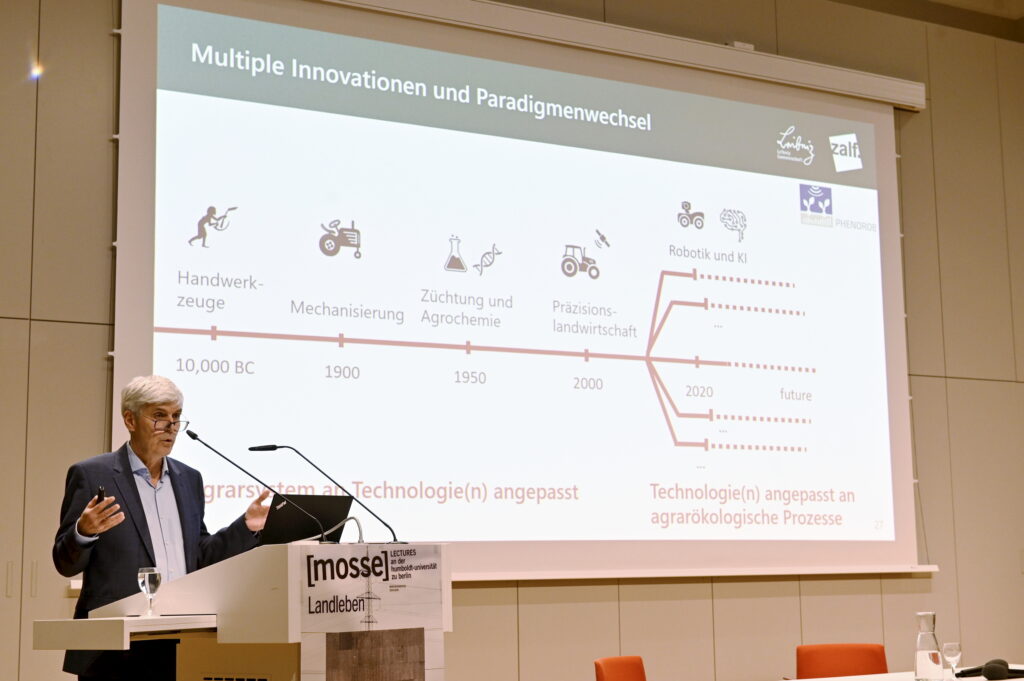
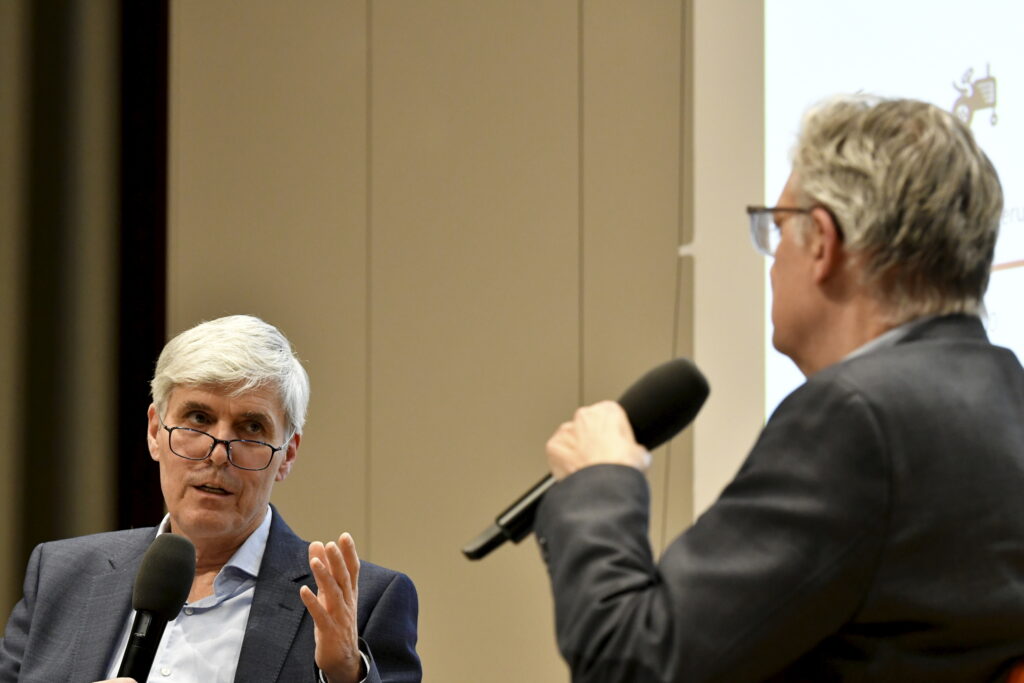
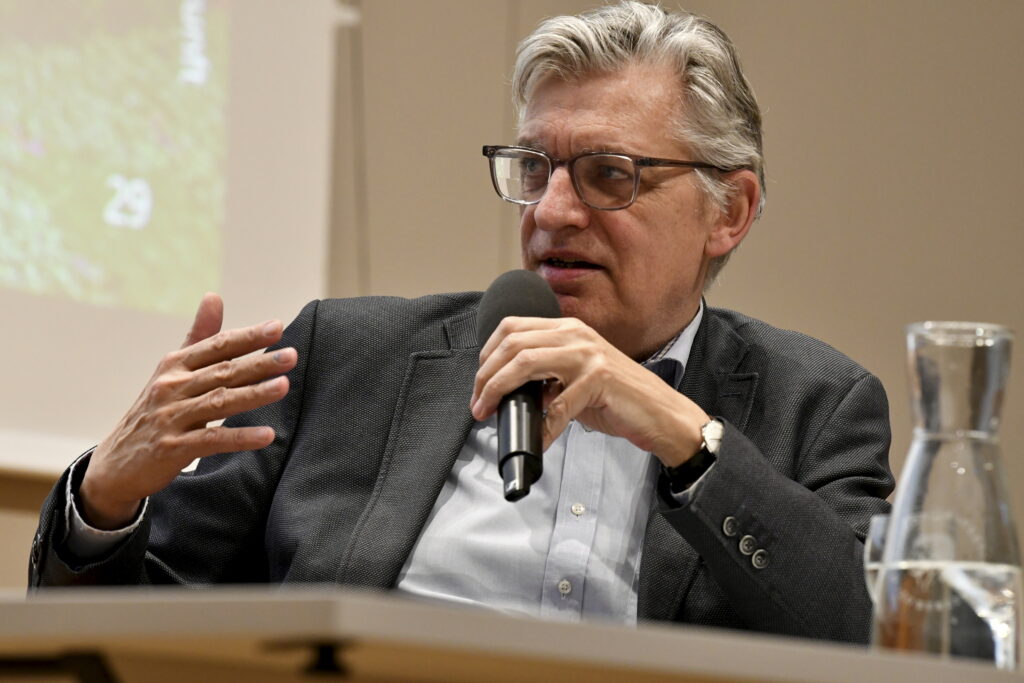
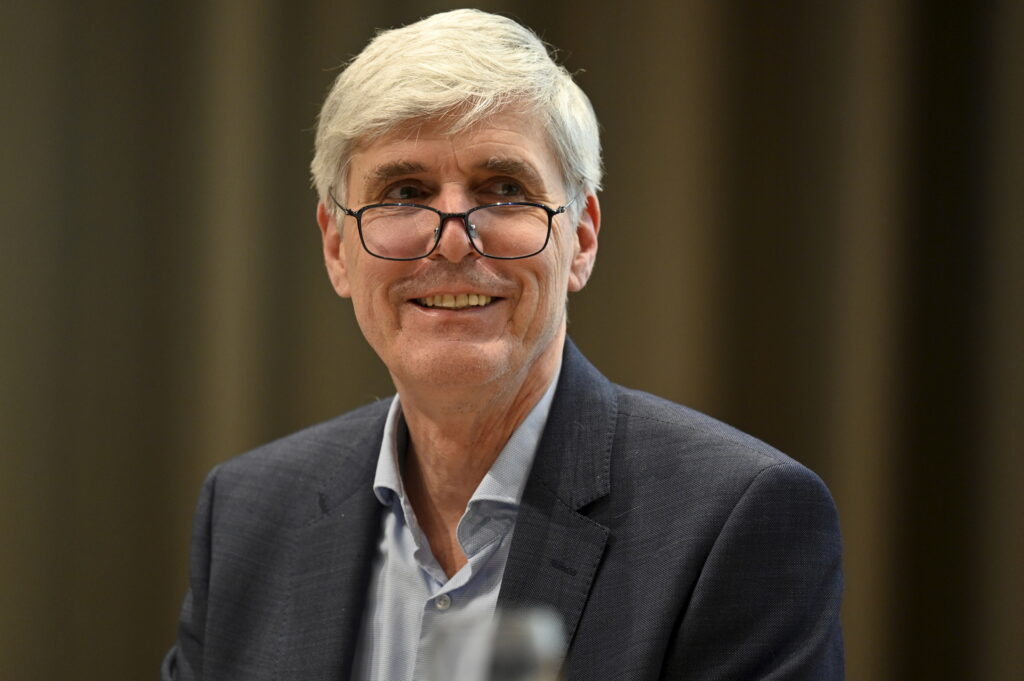
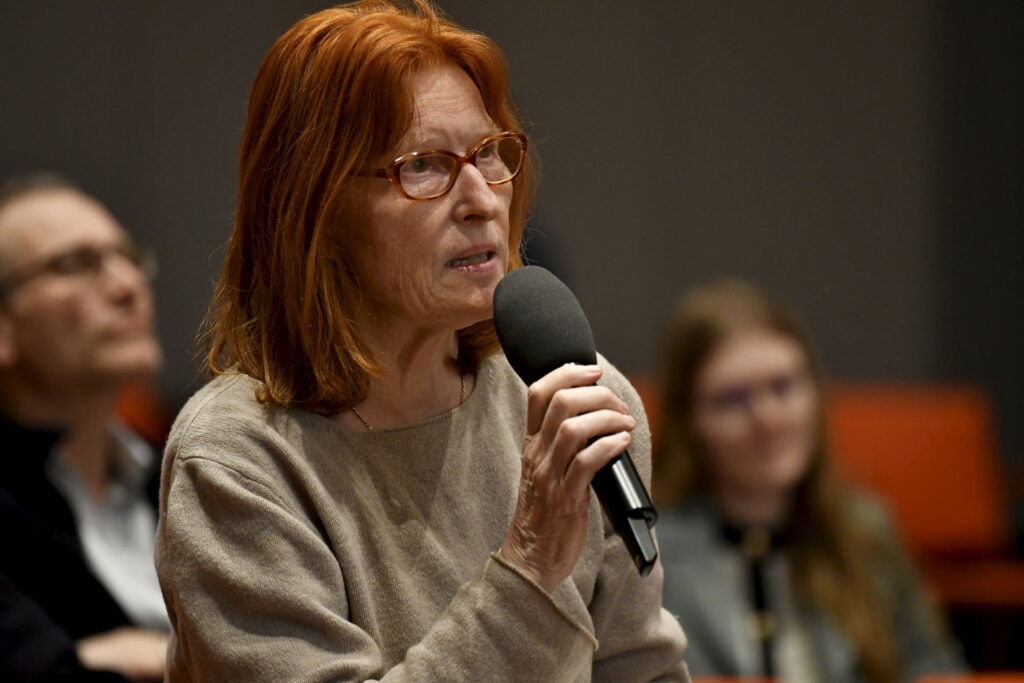
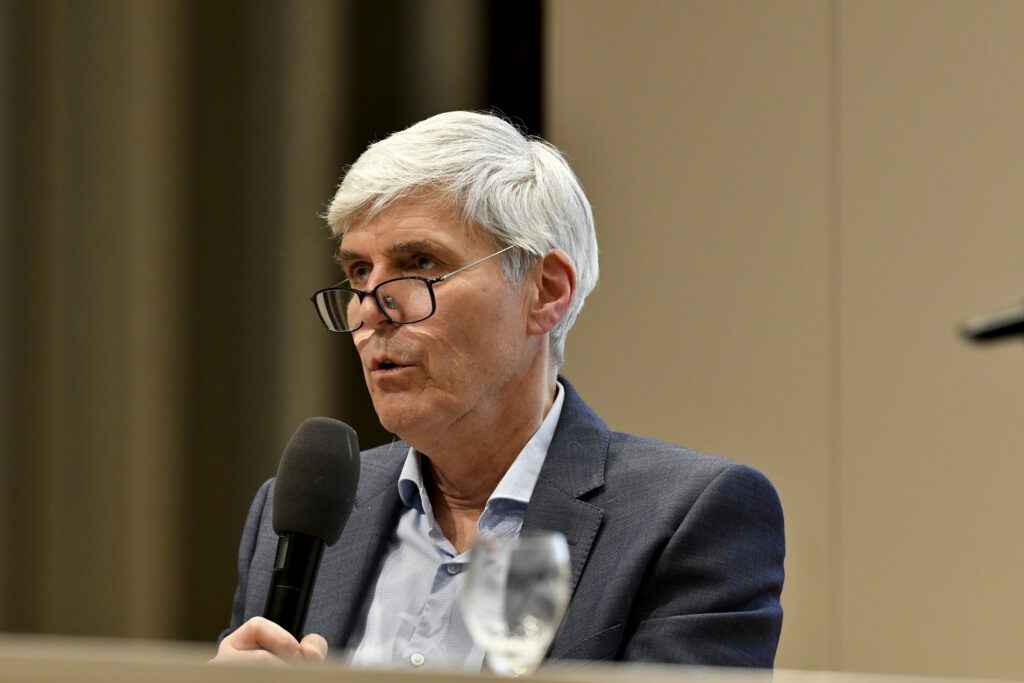
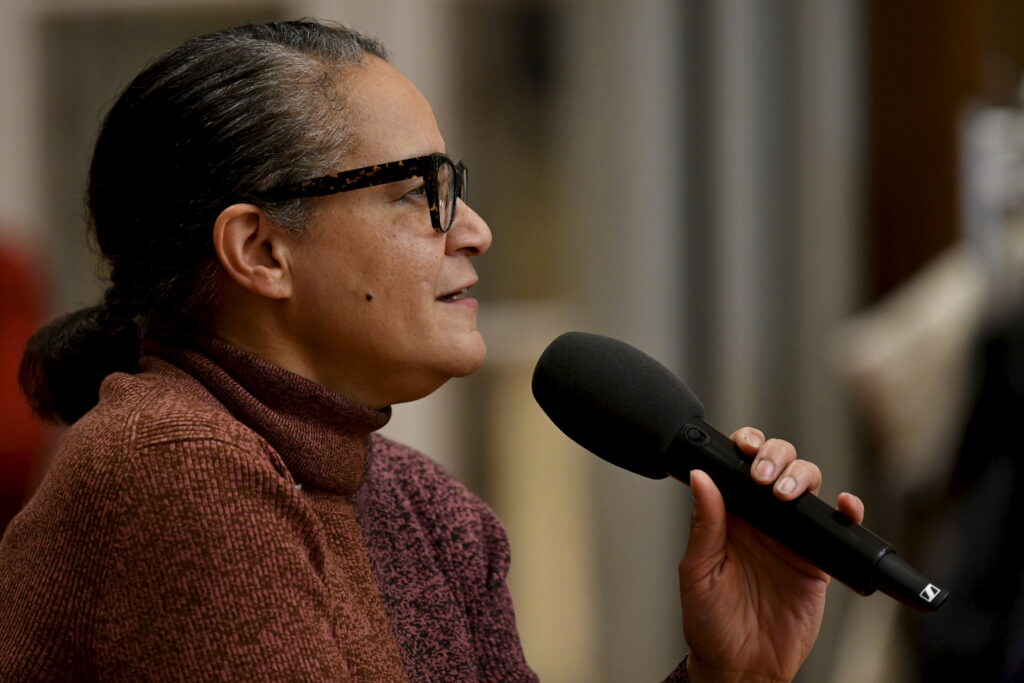
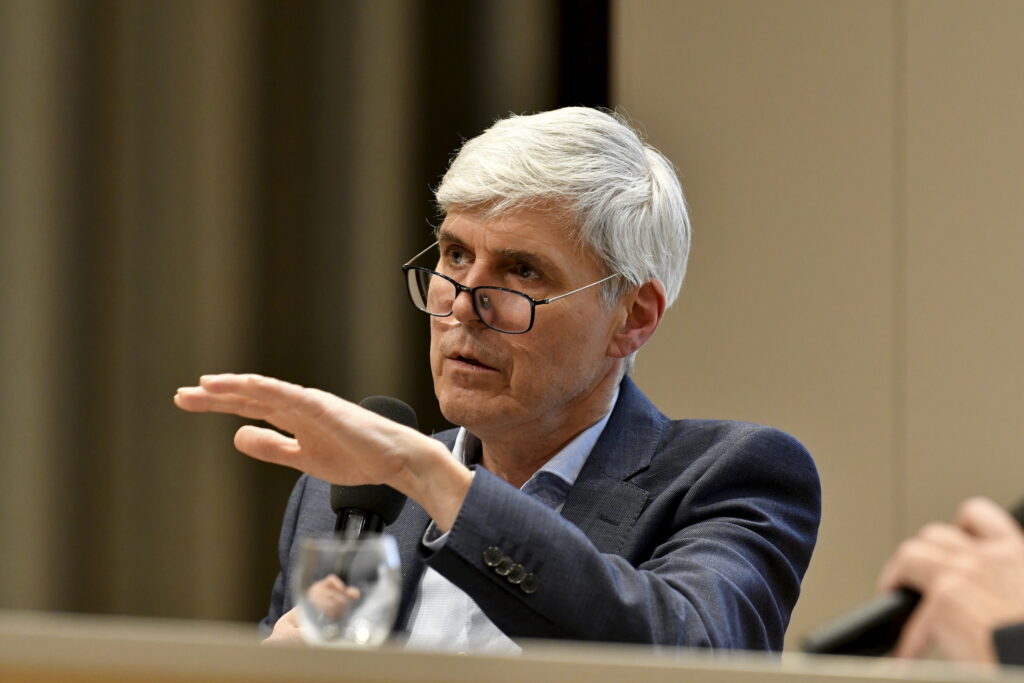
[media response]:
– Torsten Flüh on Night Out @ Berlin: Transformationen der Landwirtschaft zwischen Zeilensaat und Reallaboren